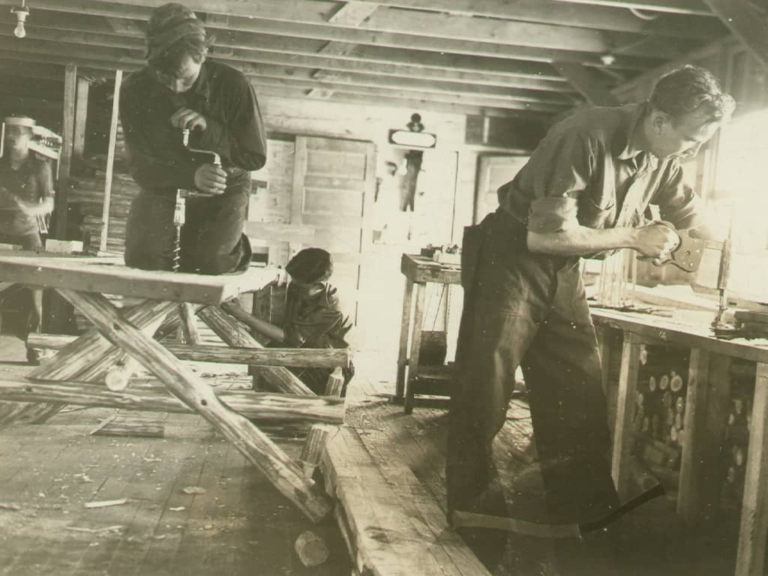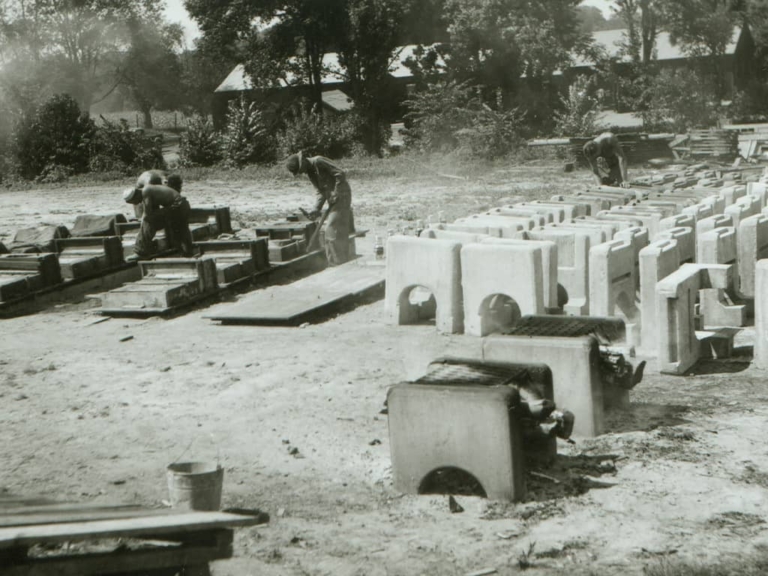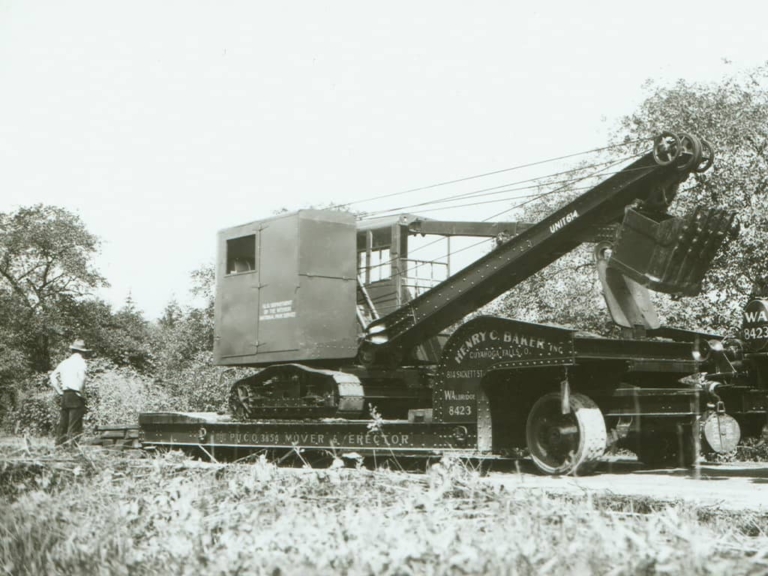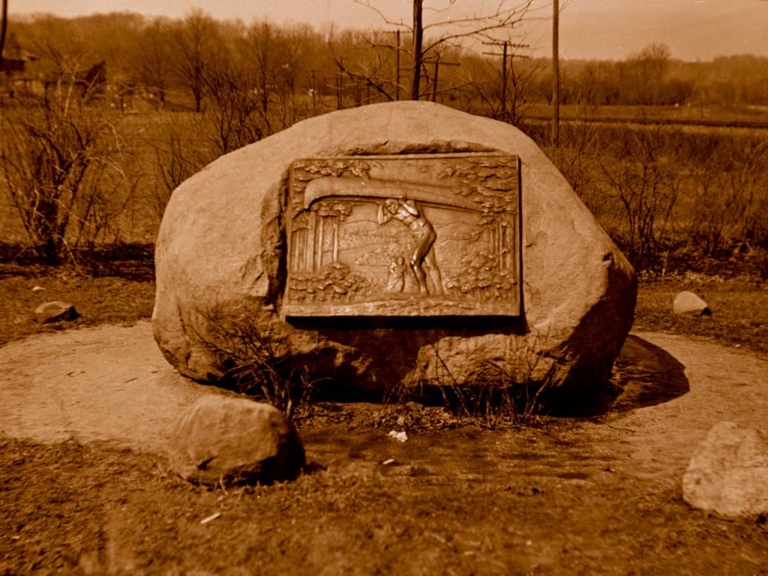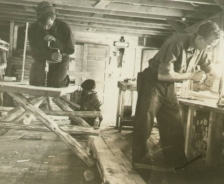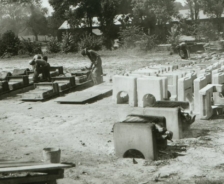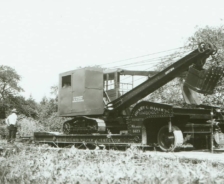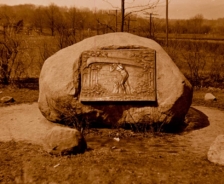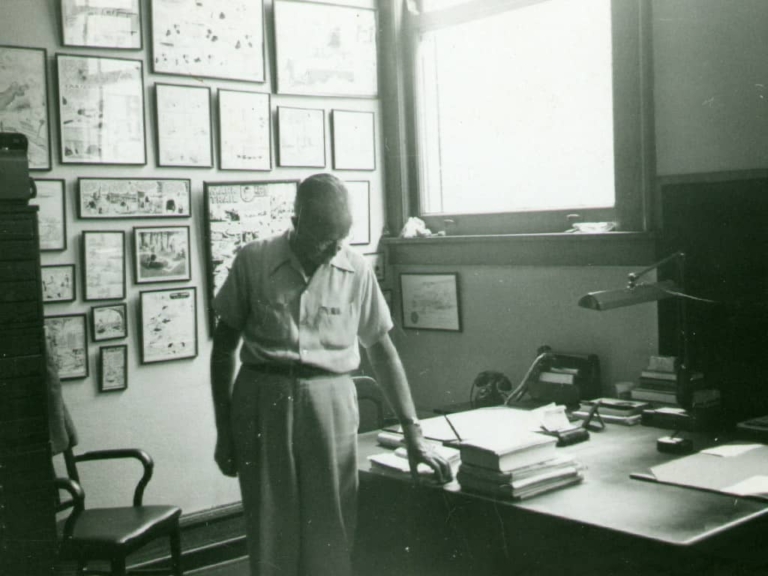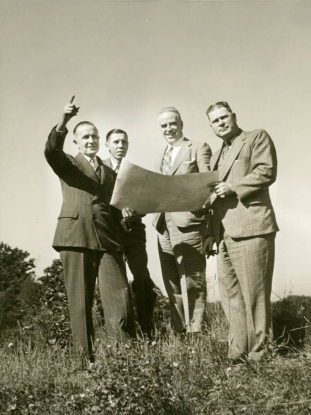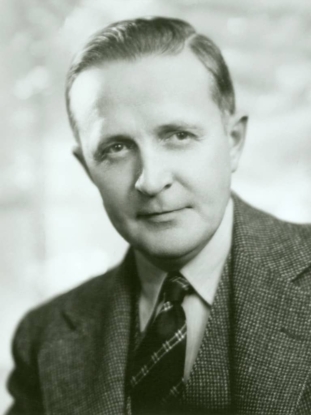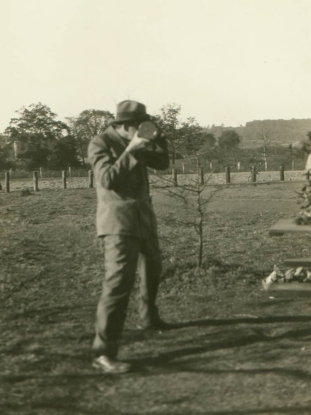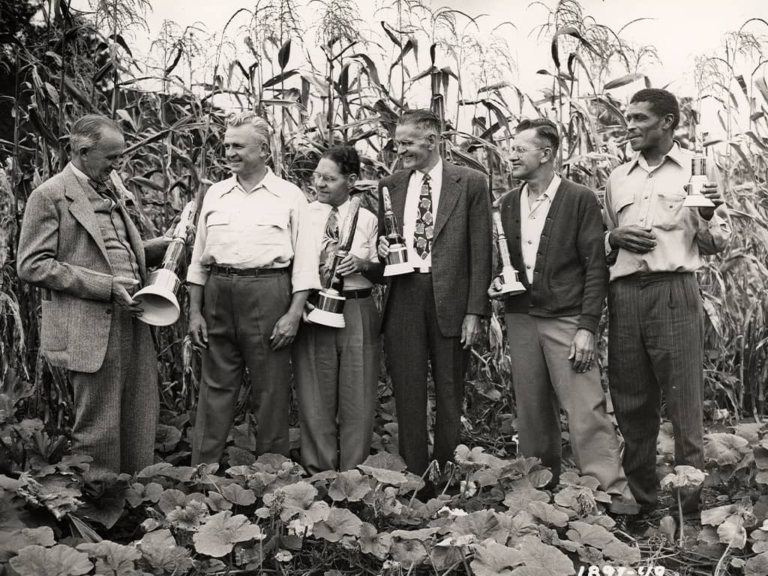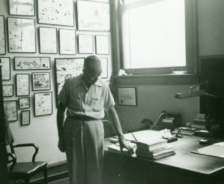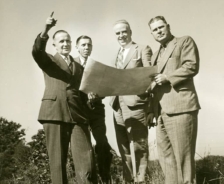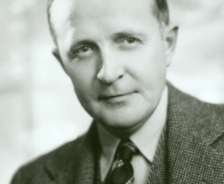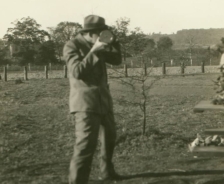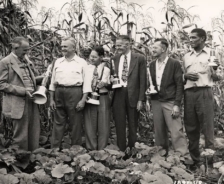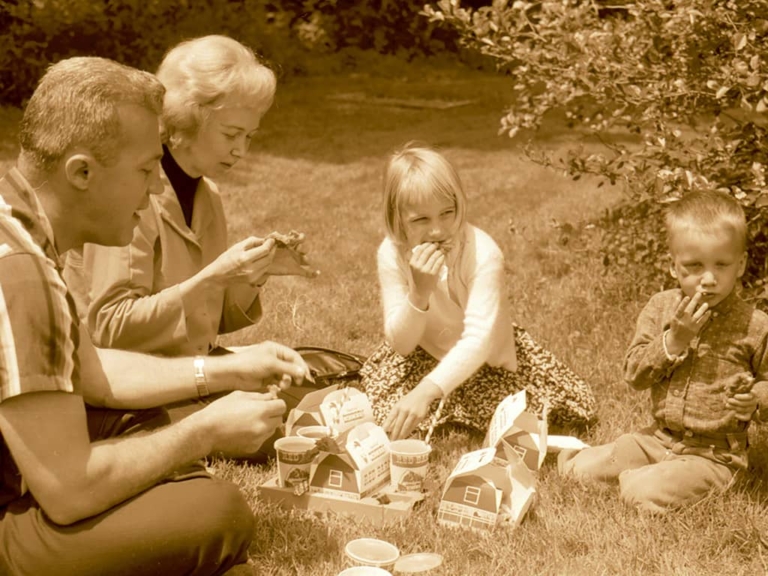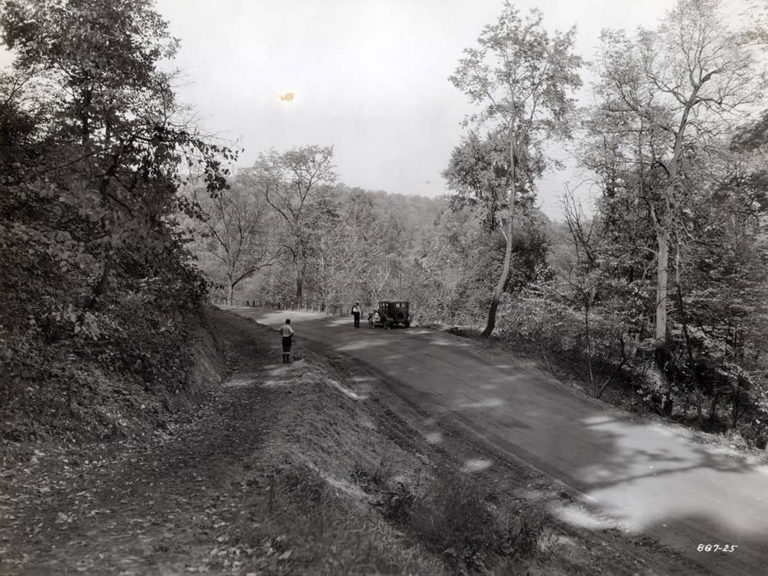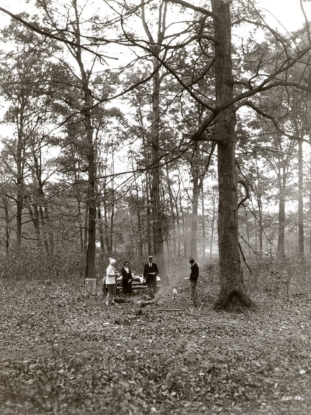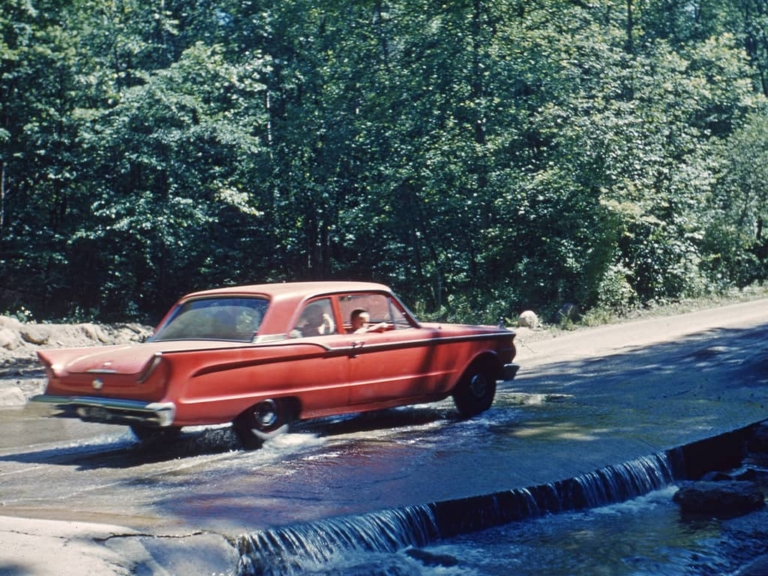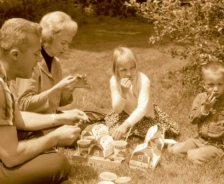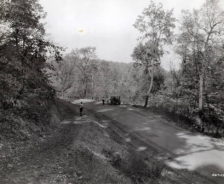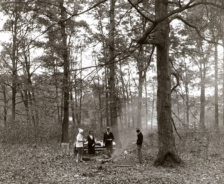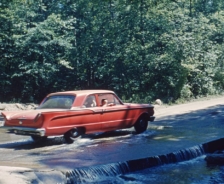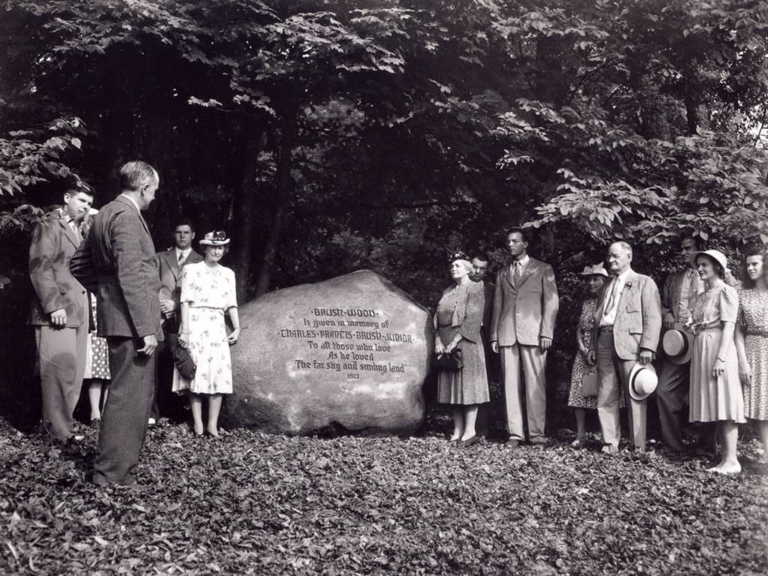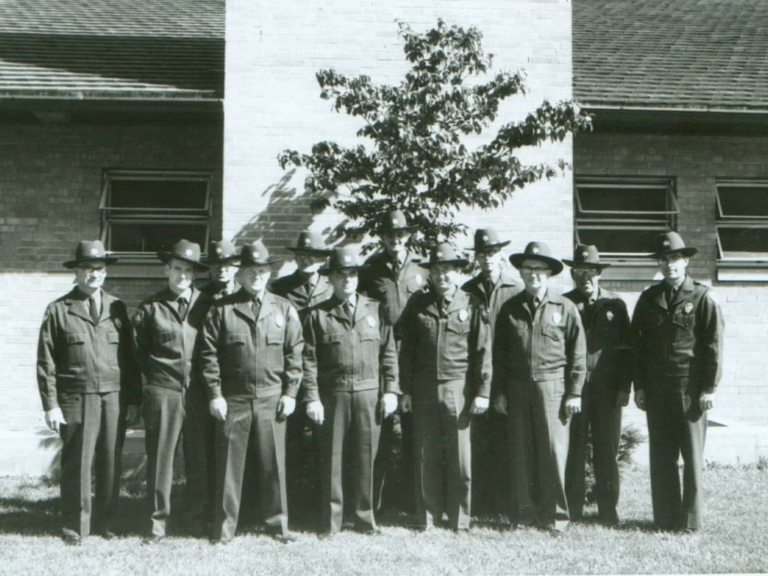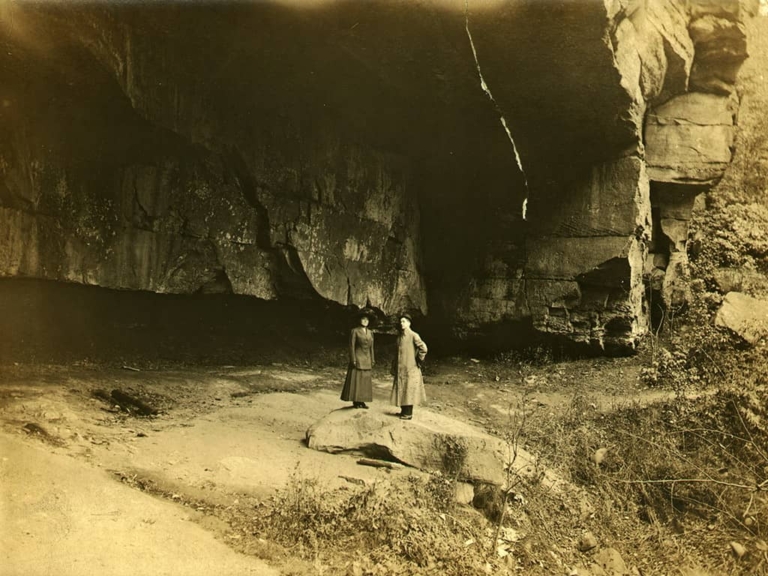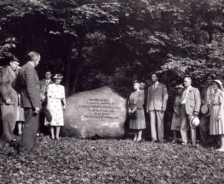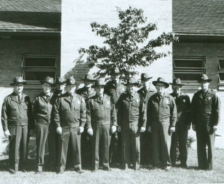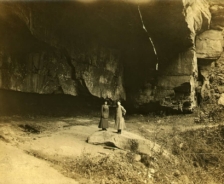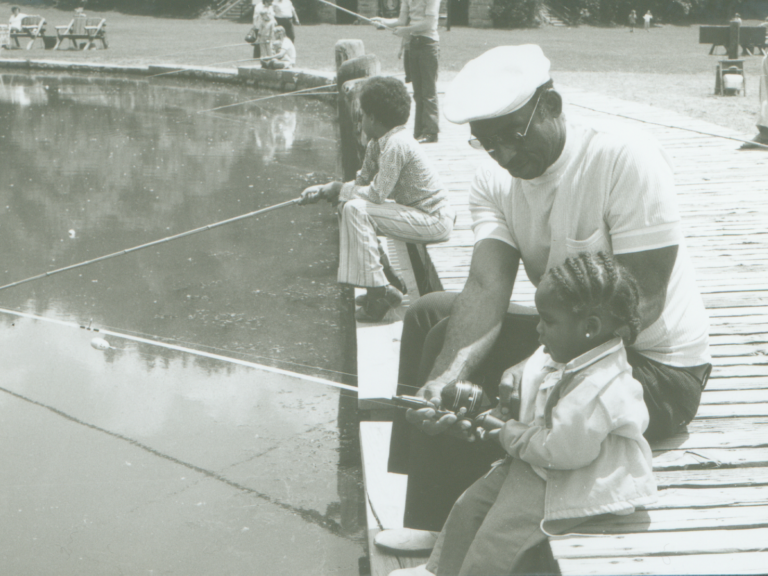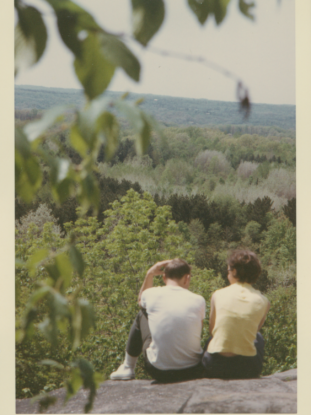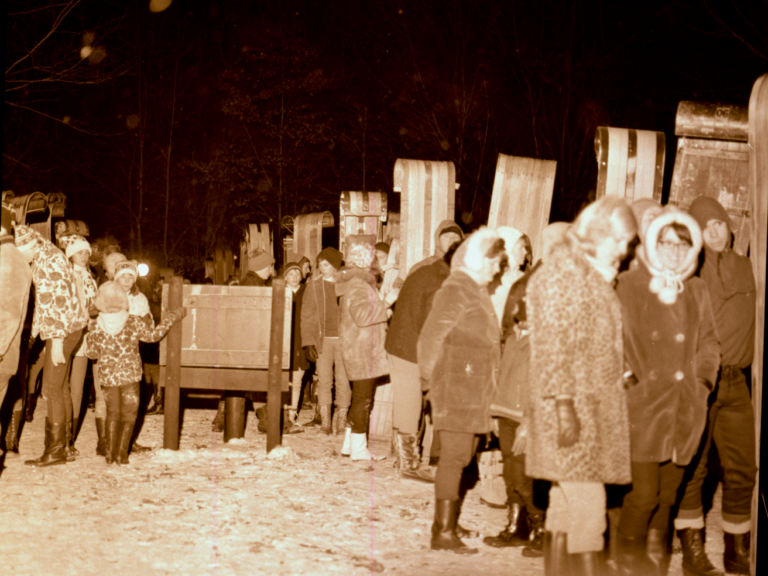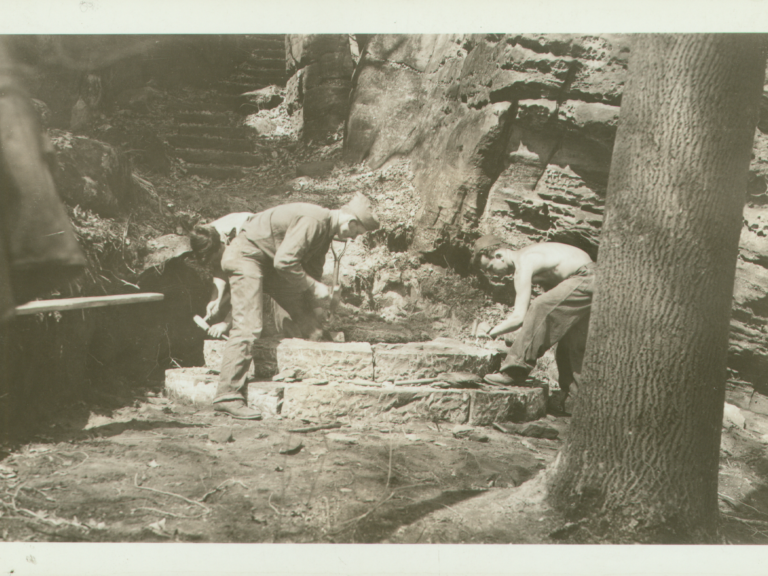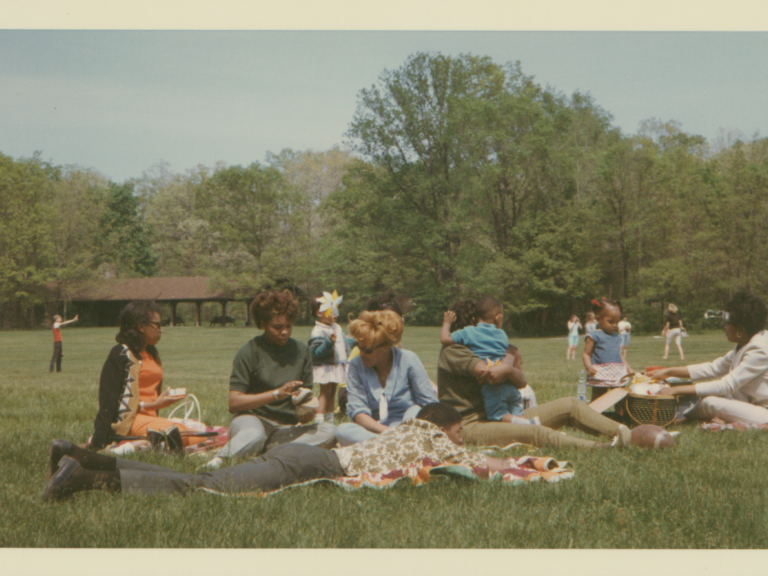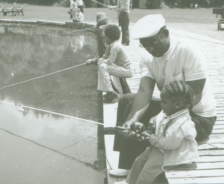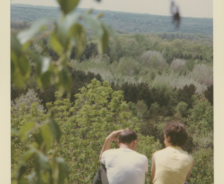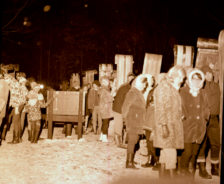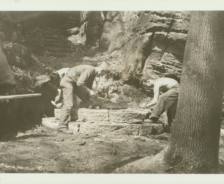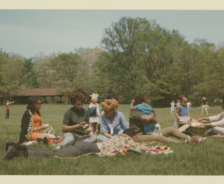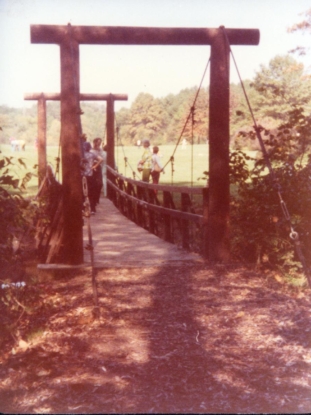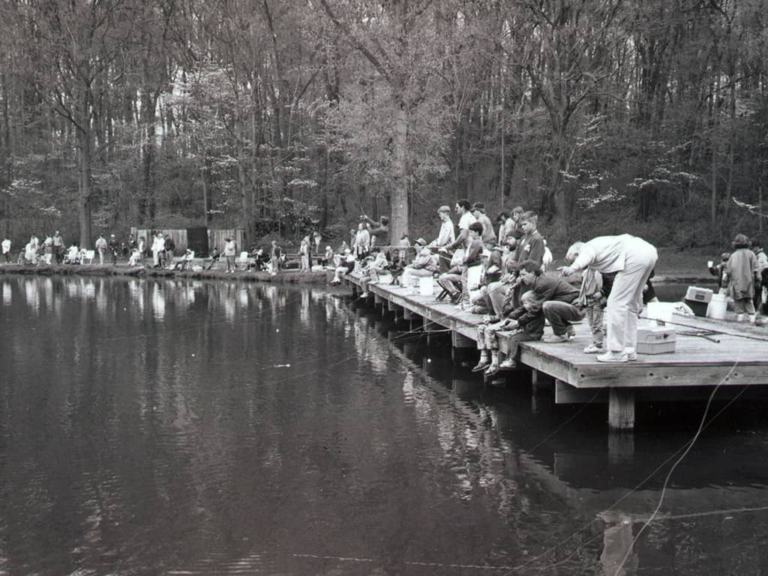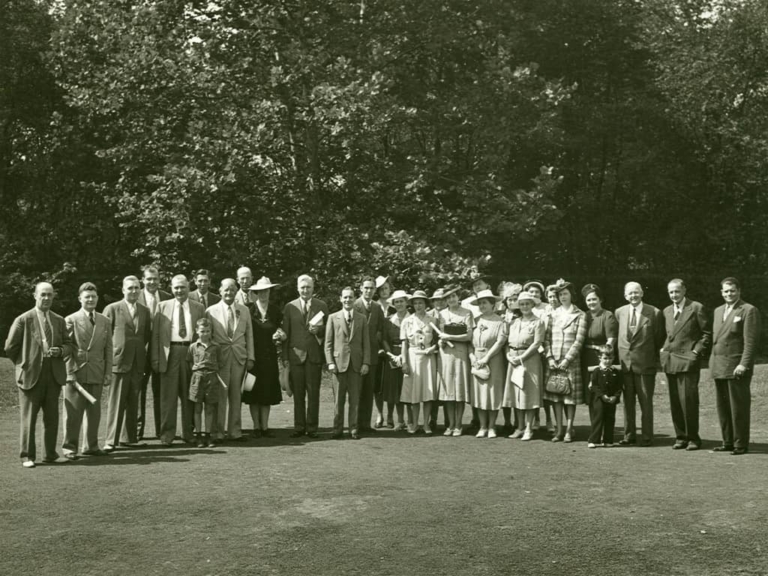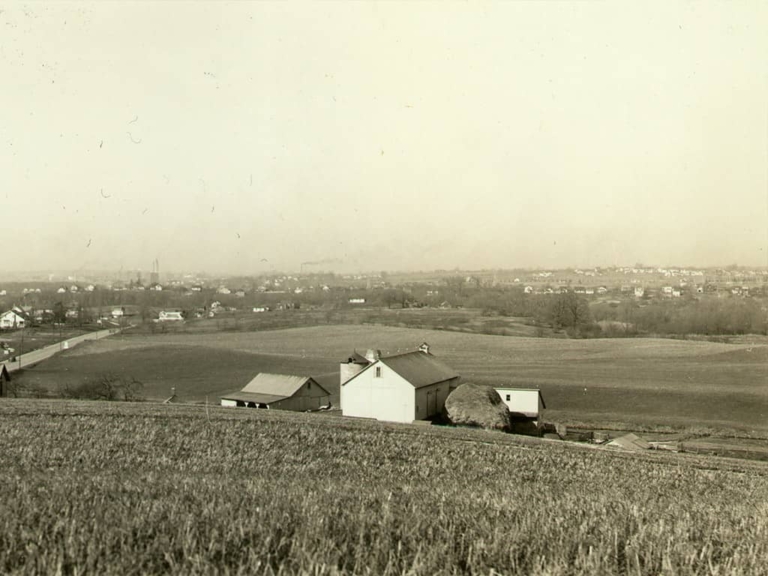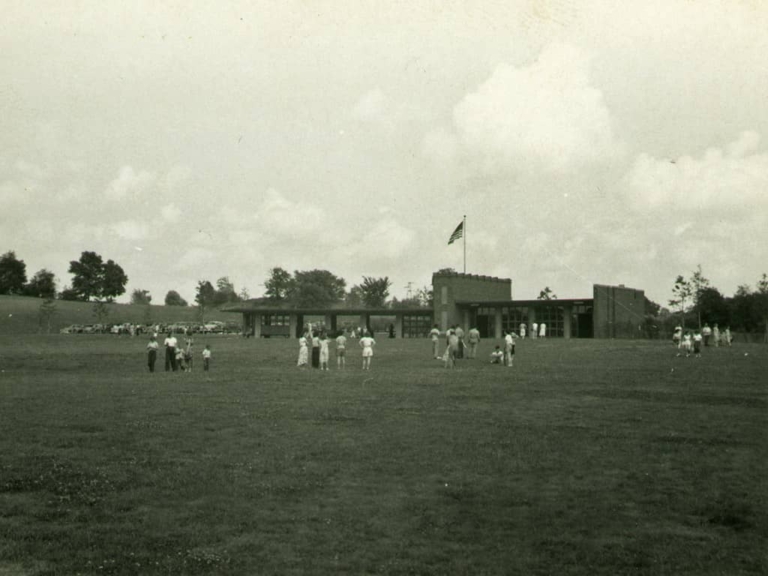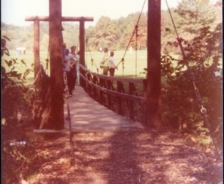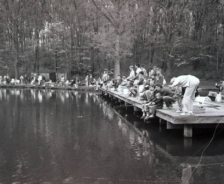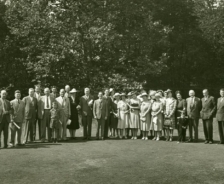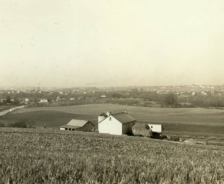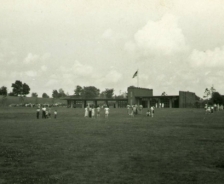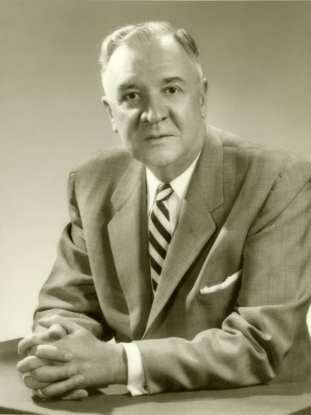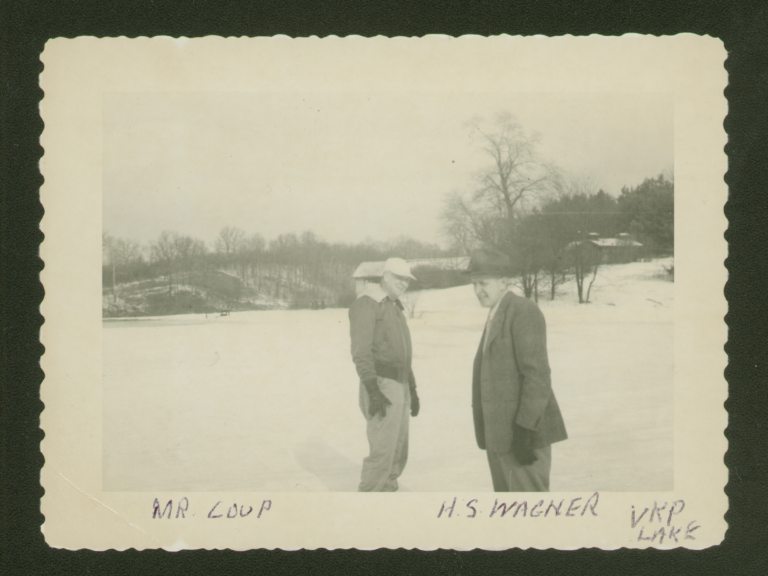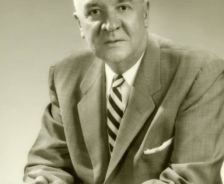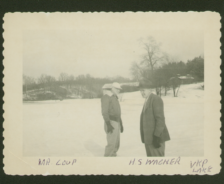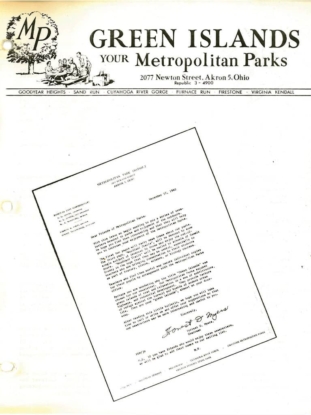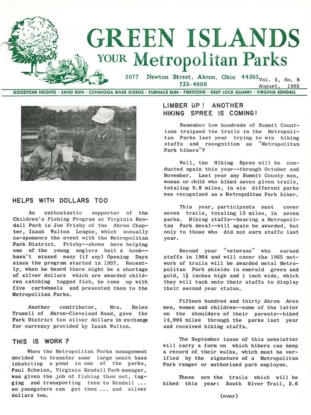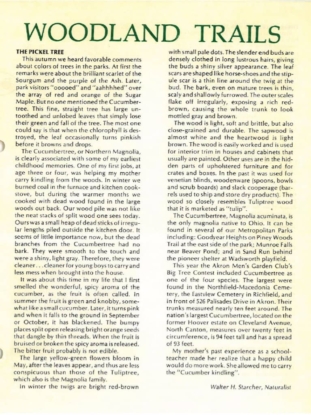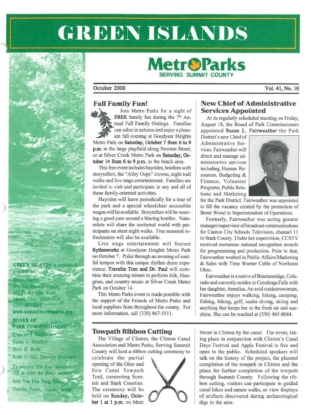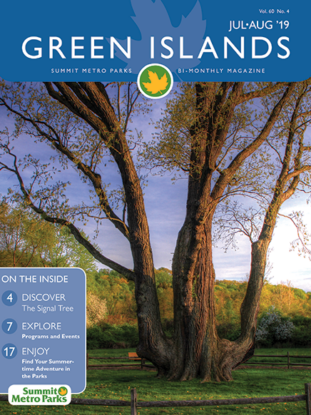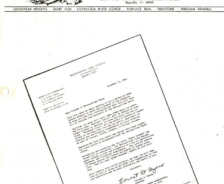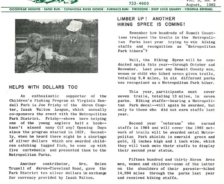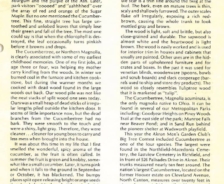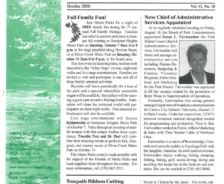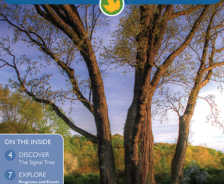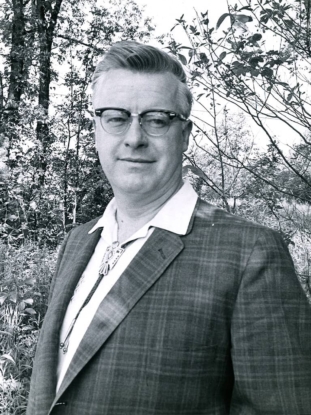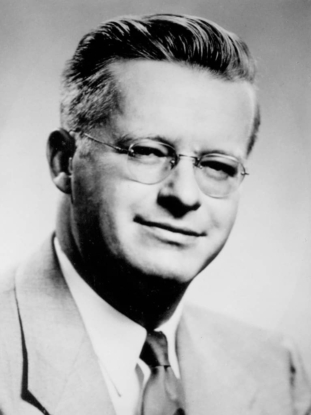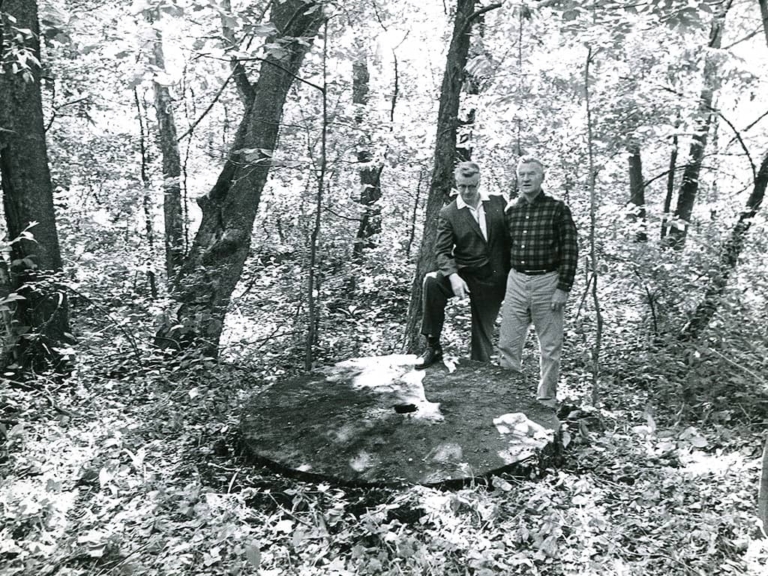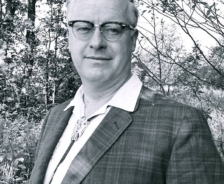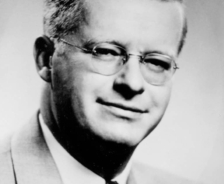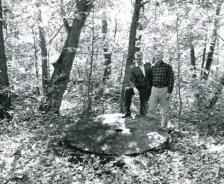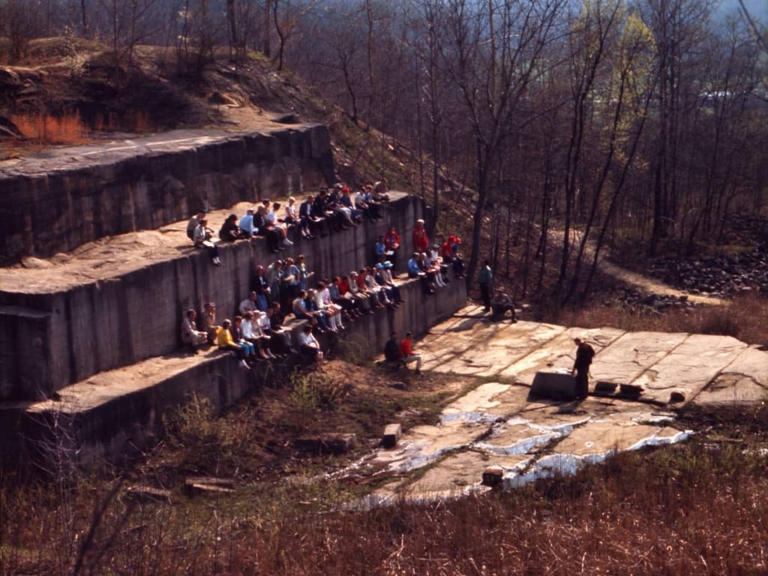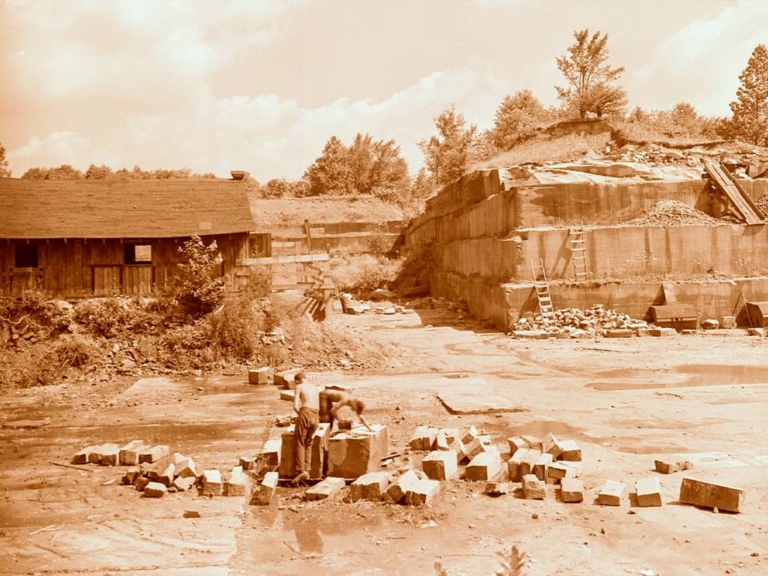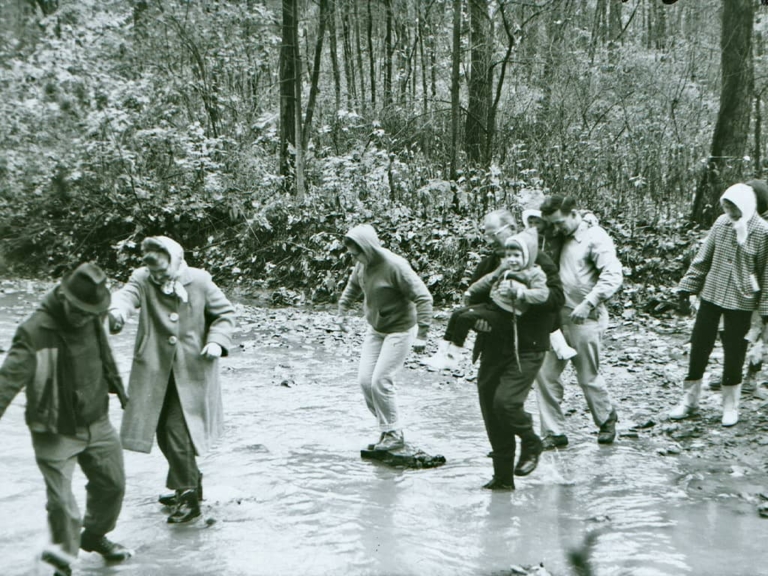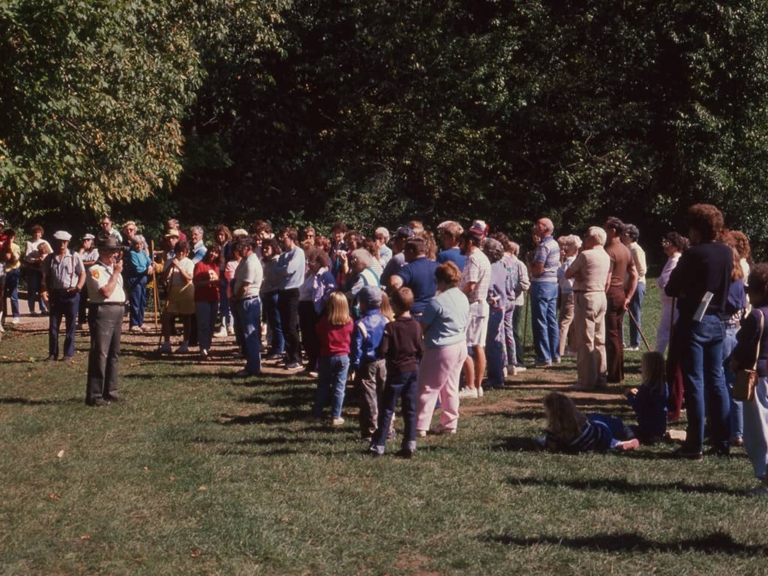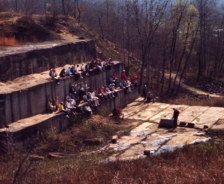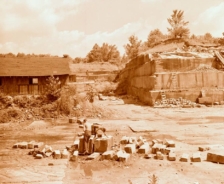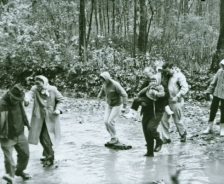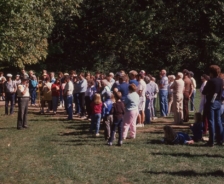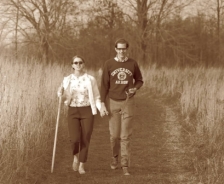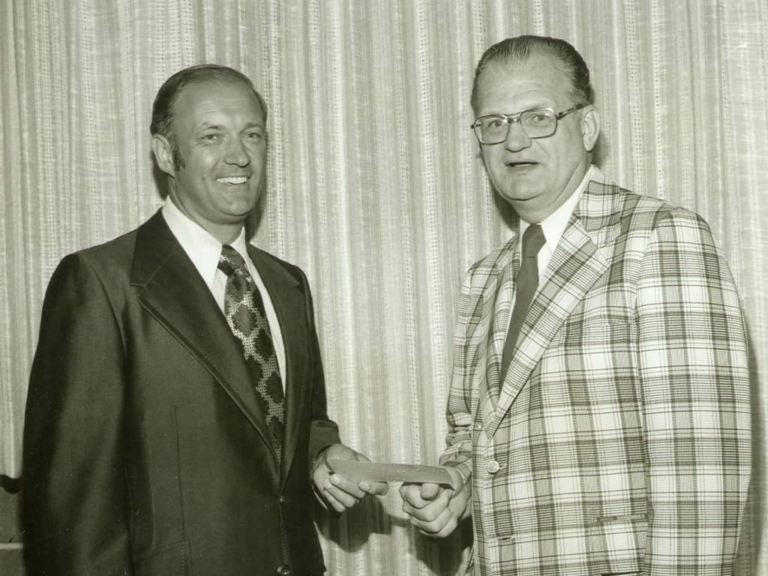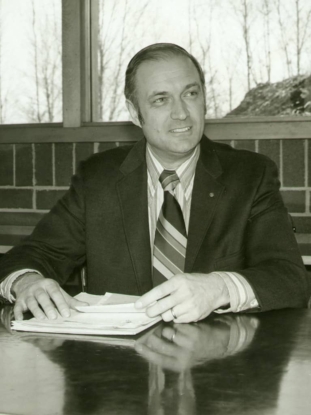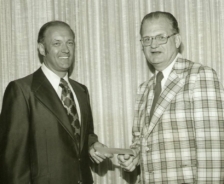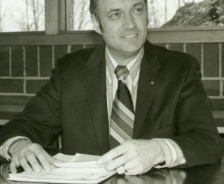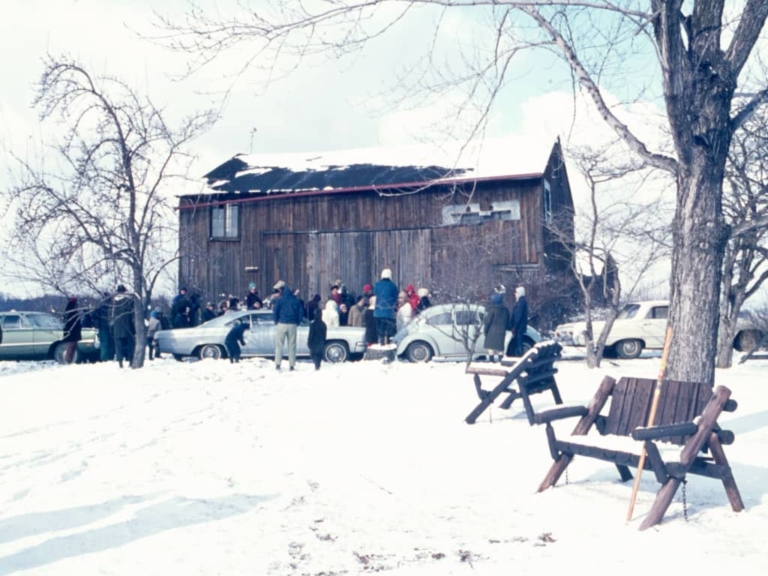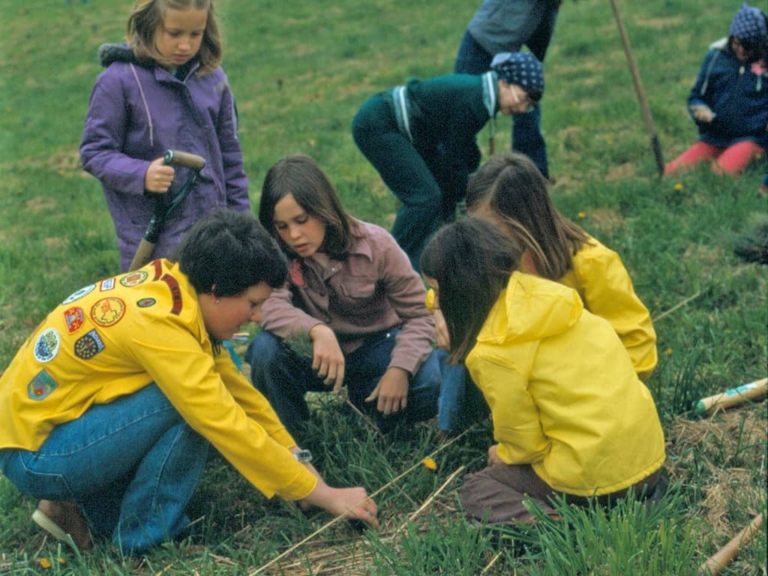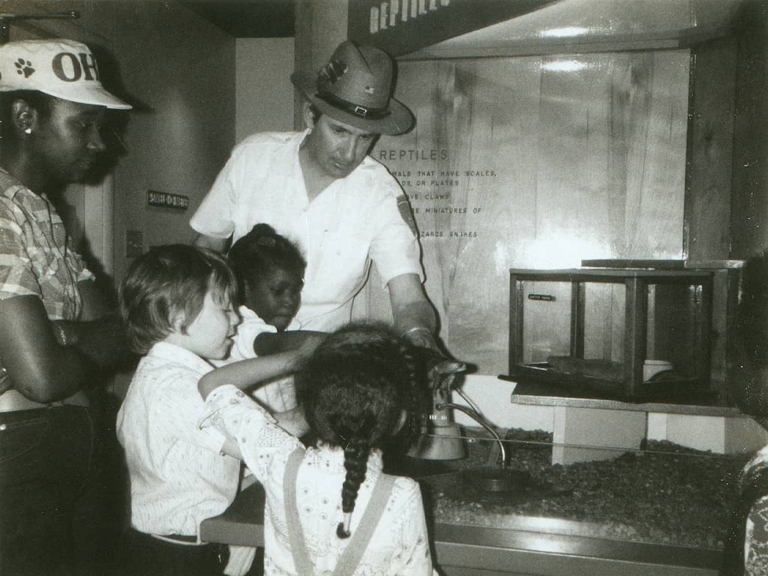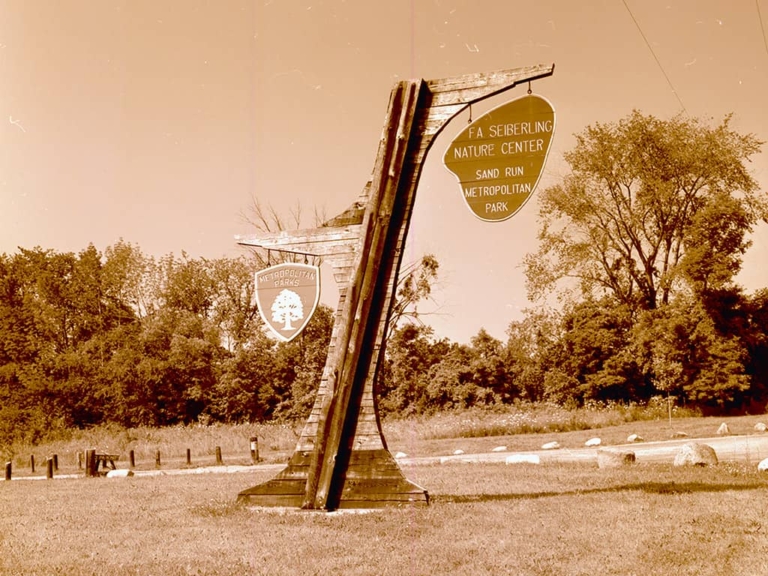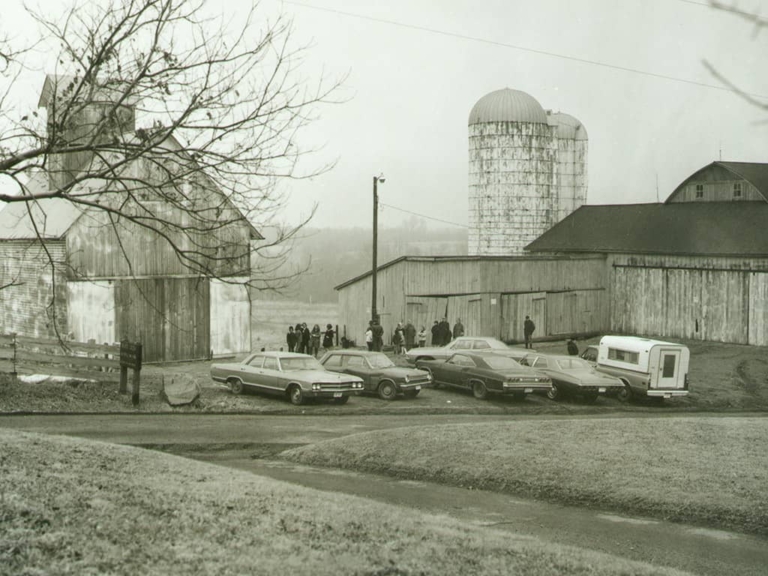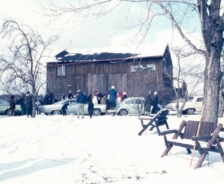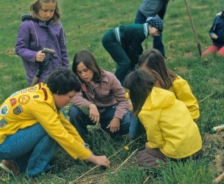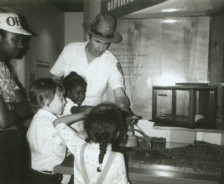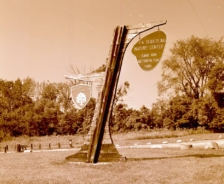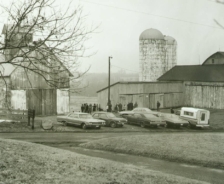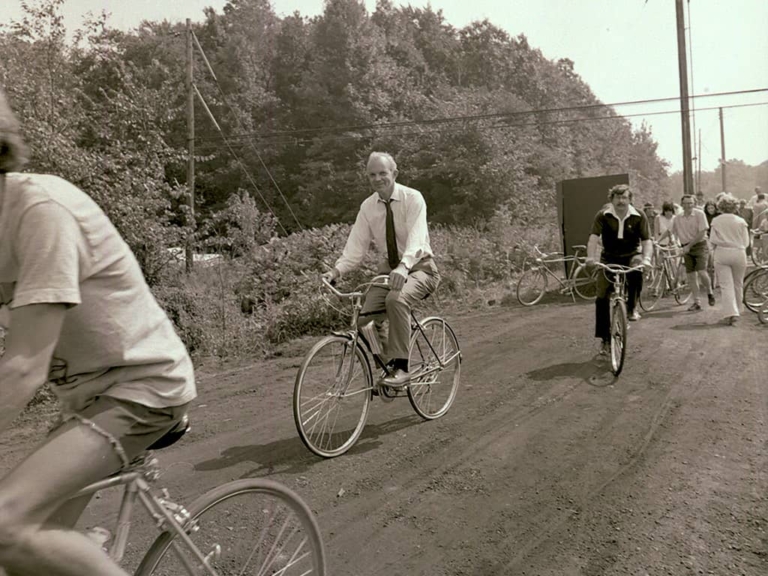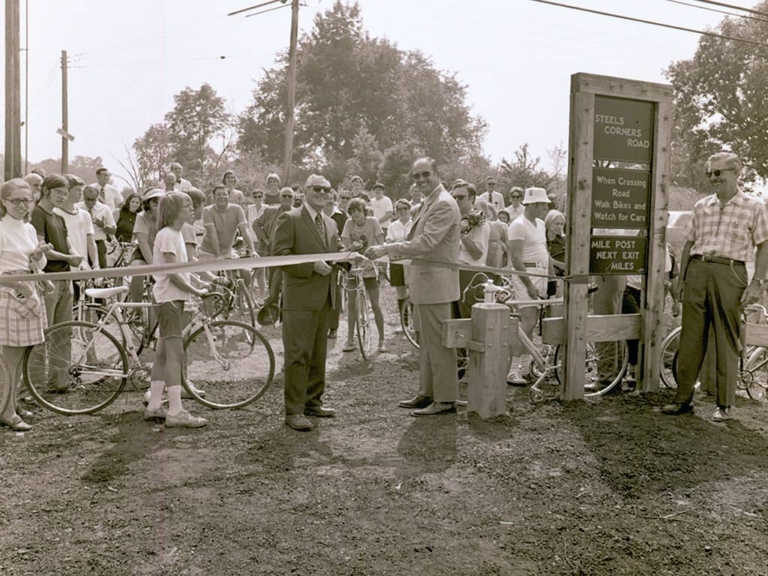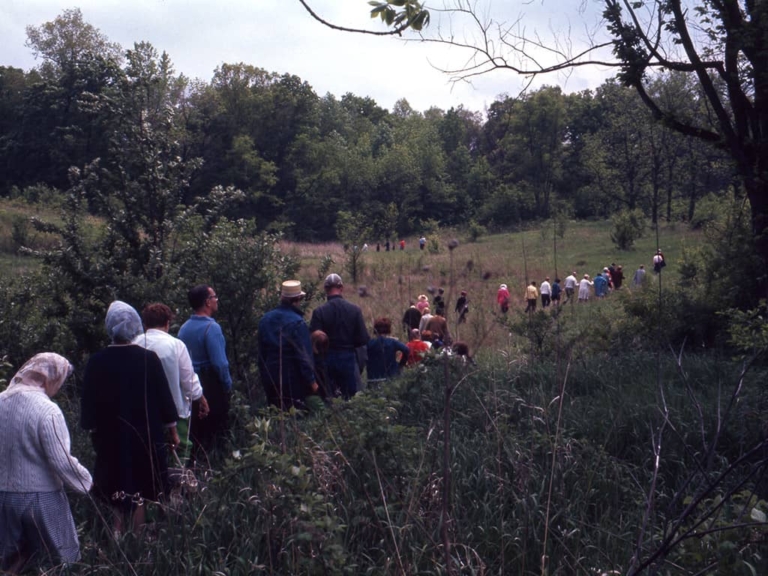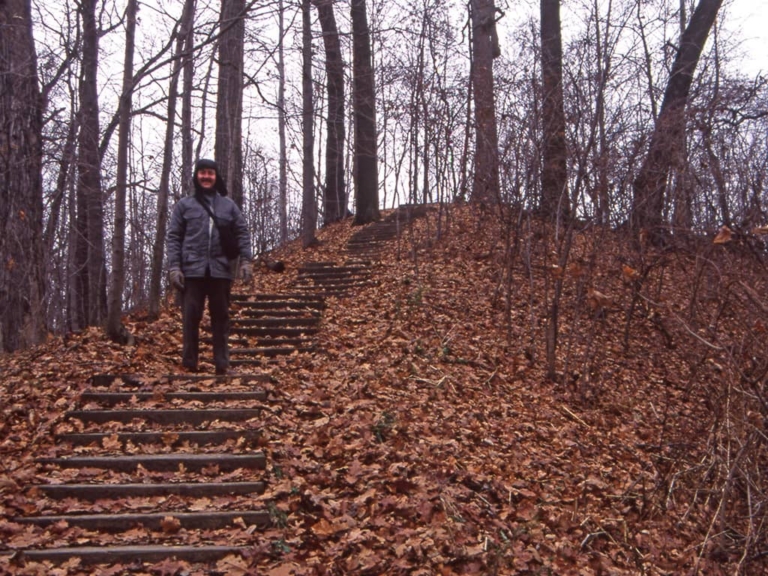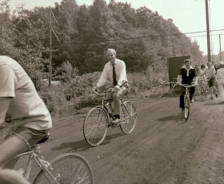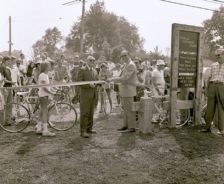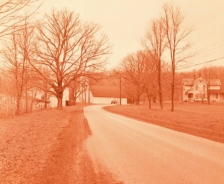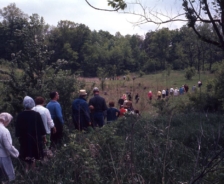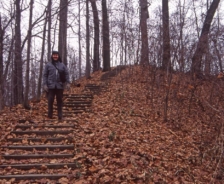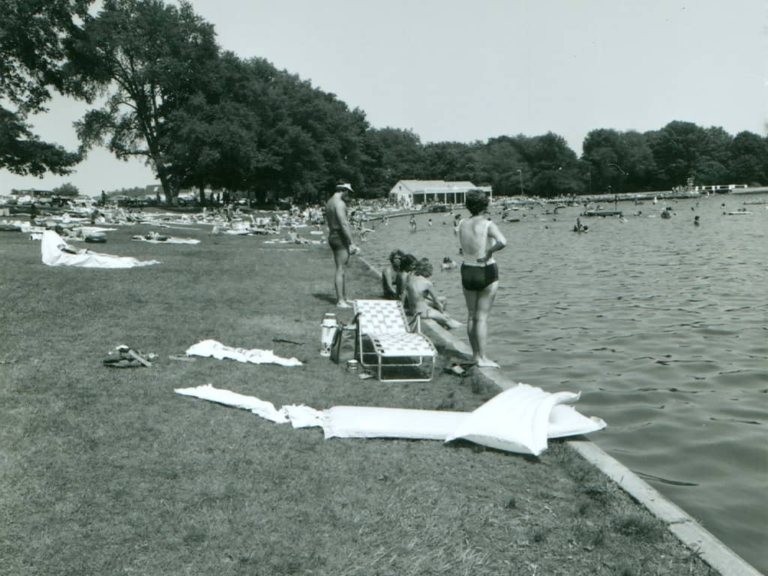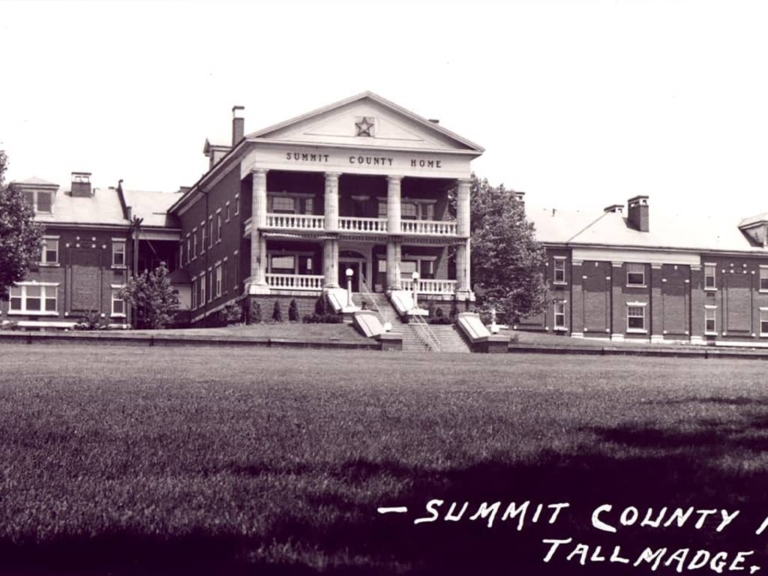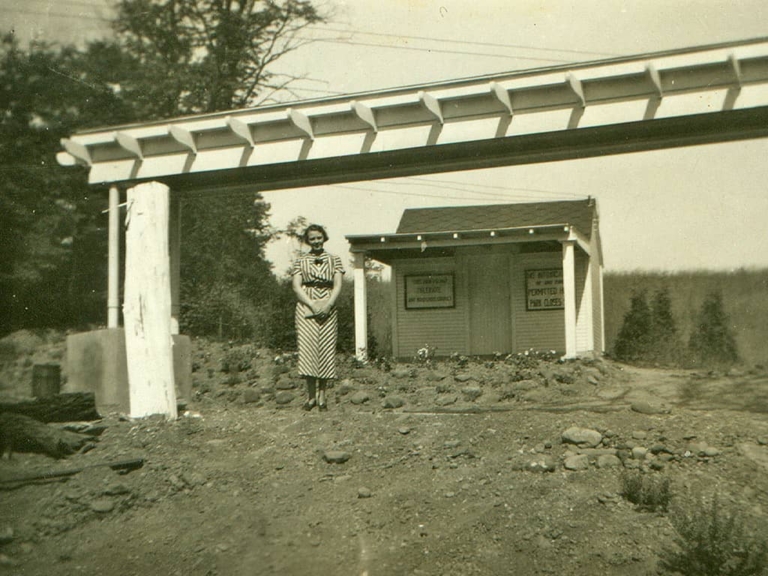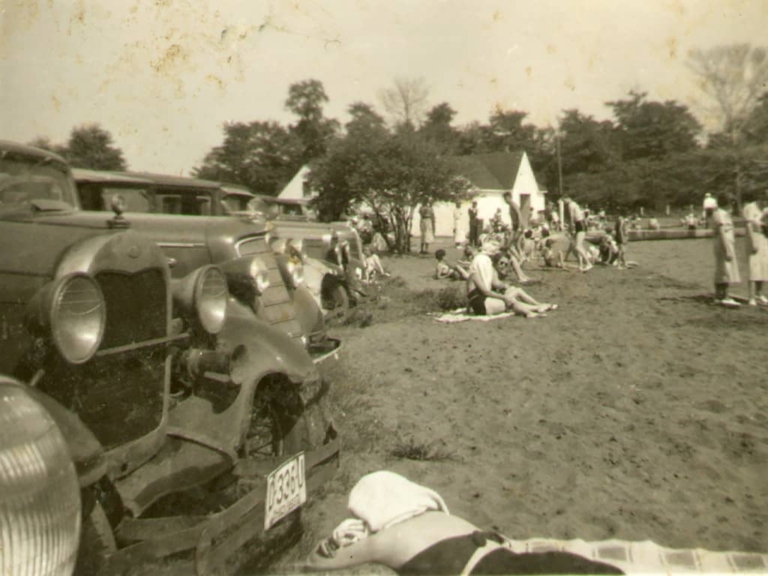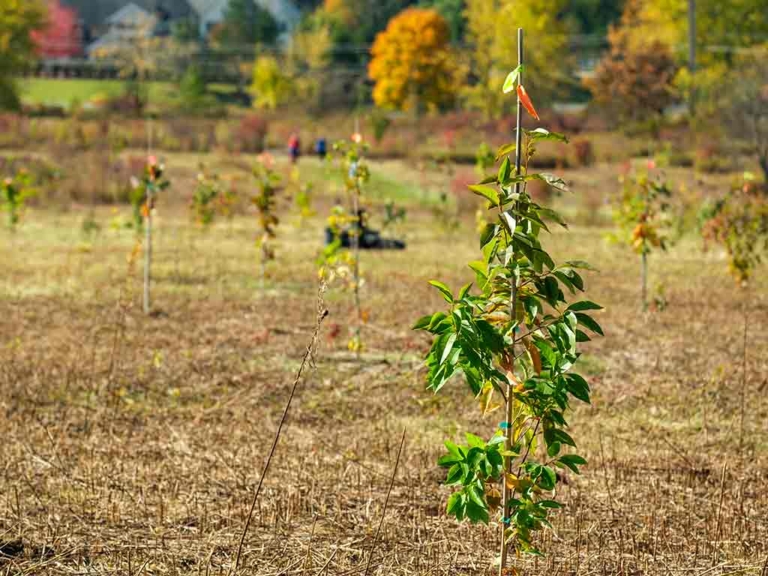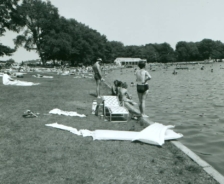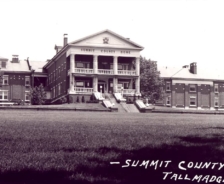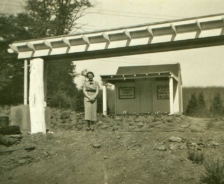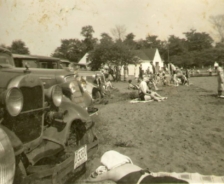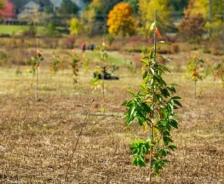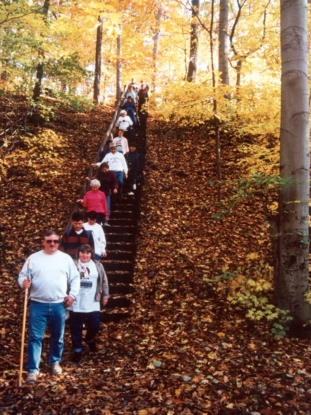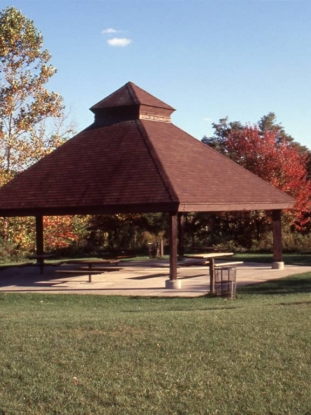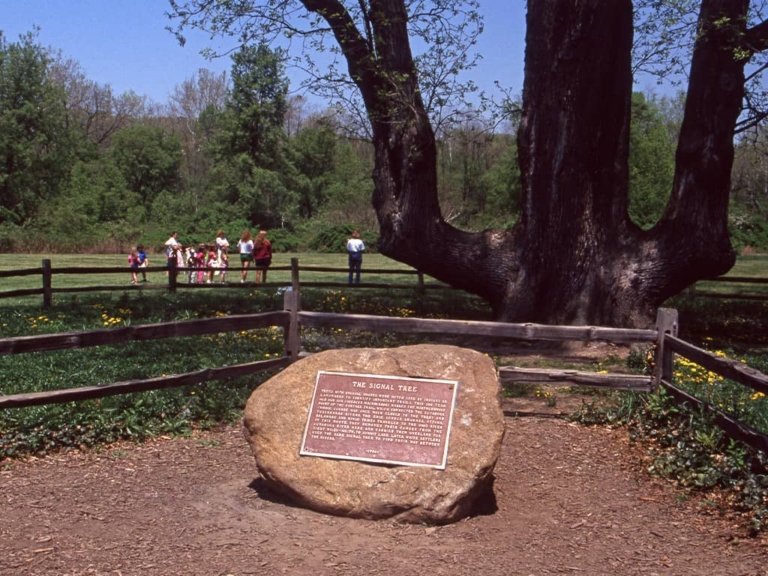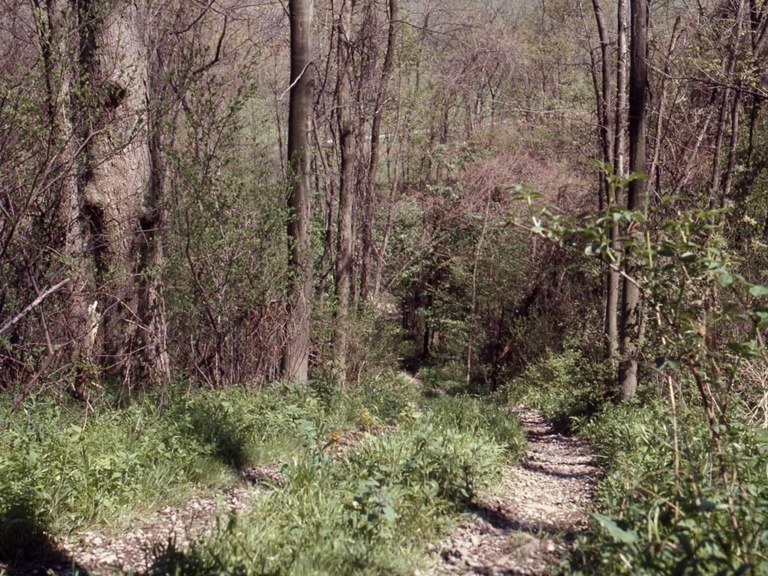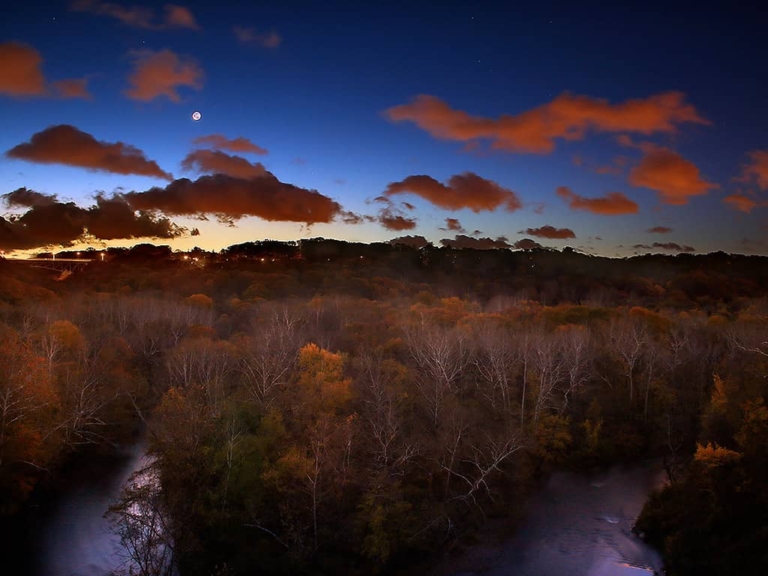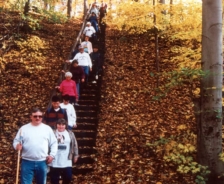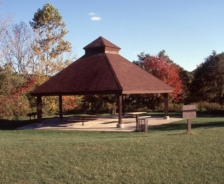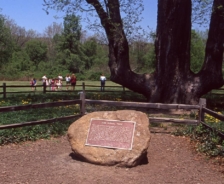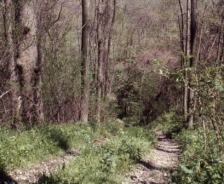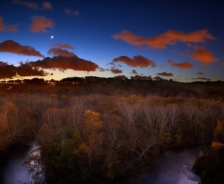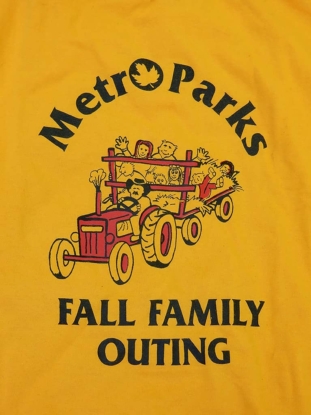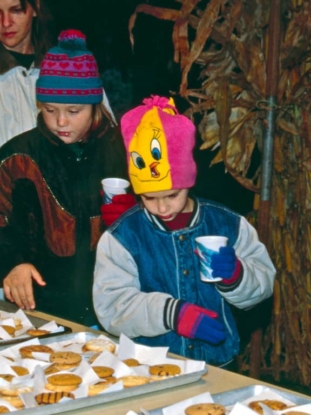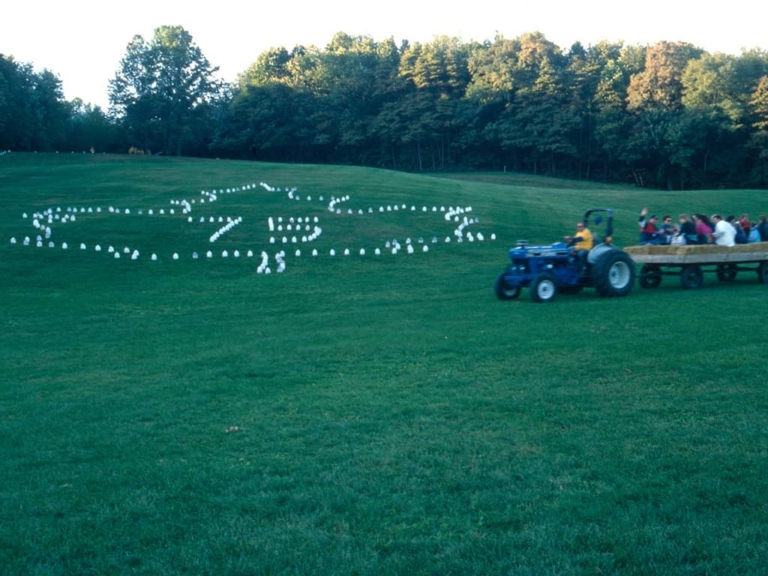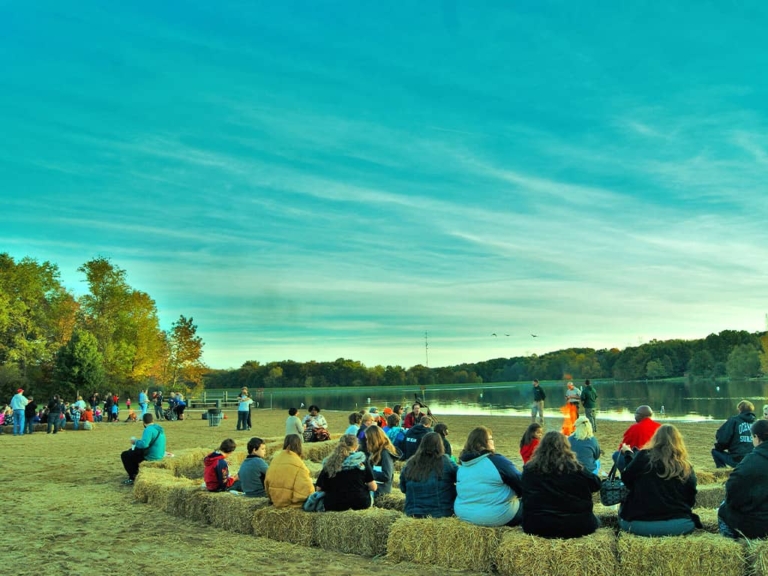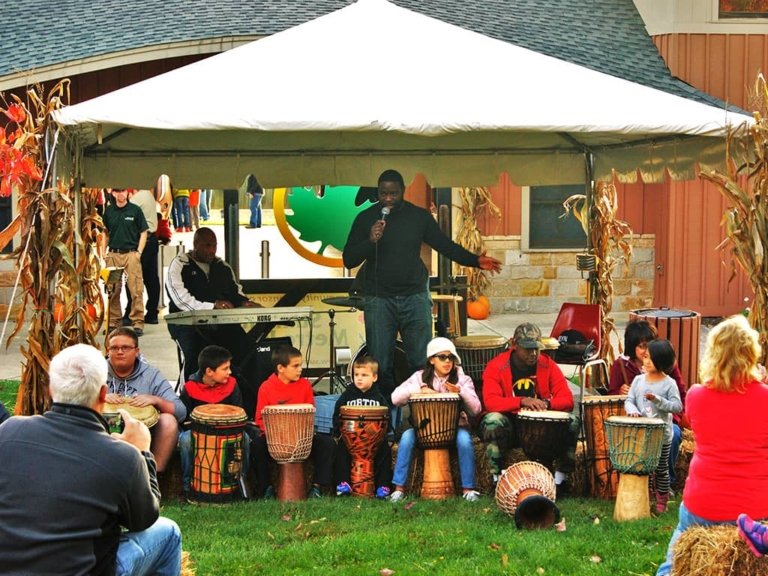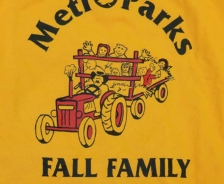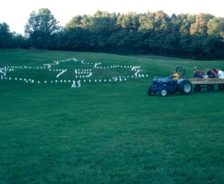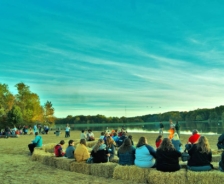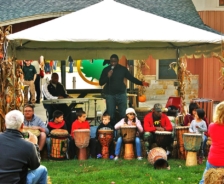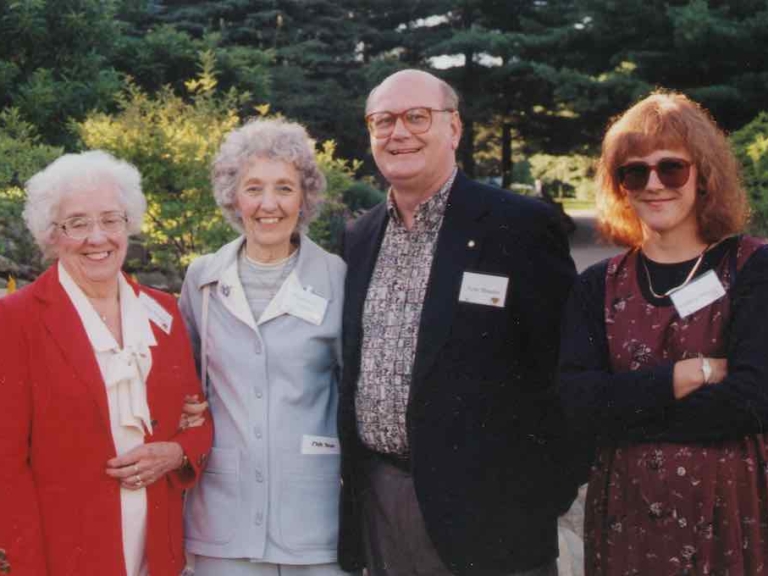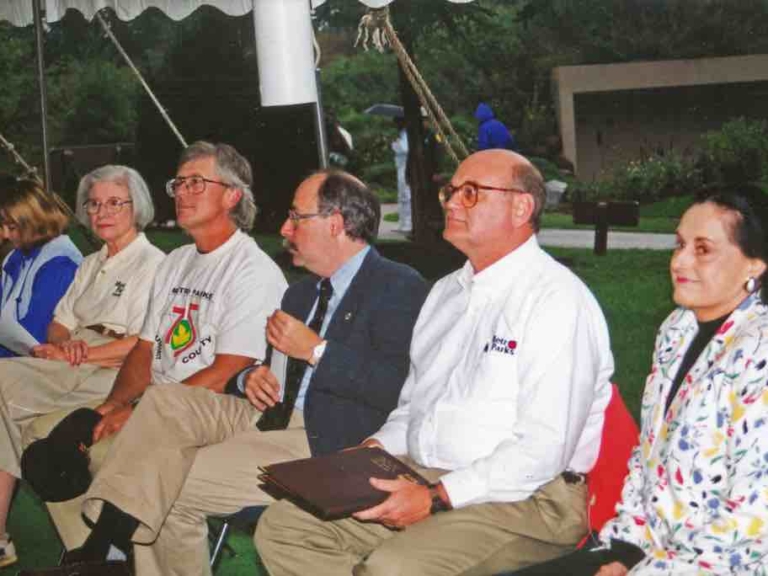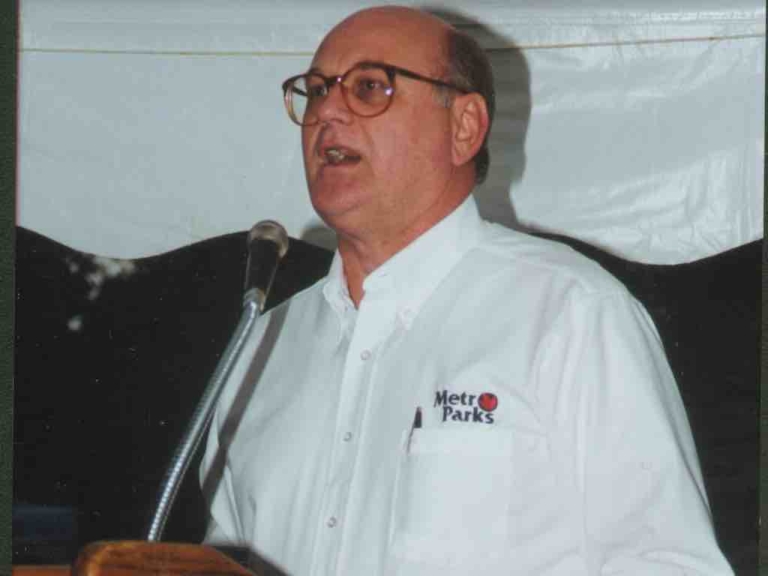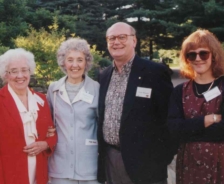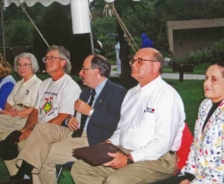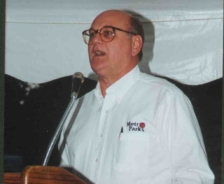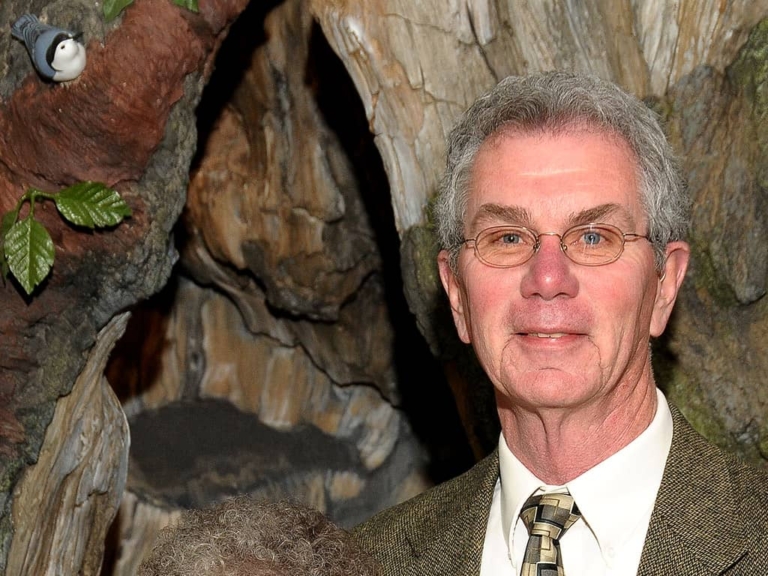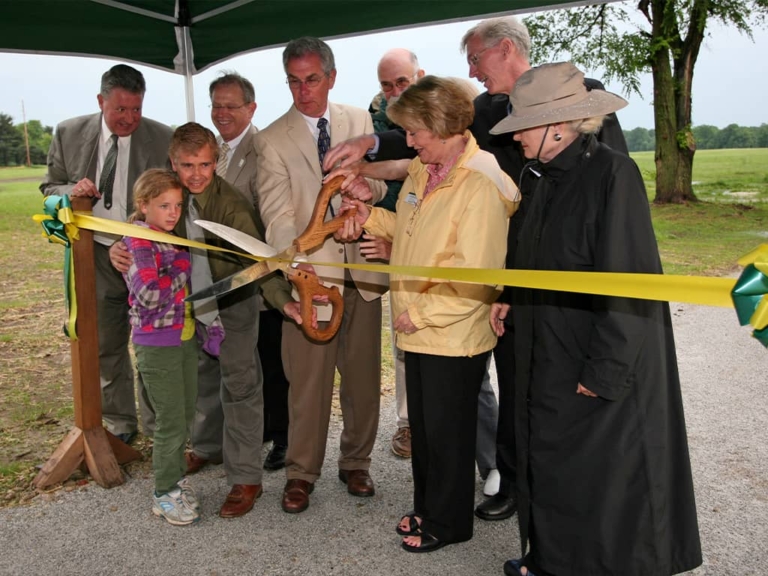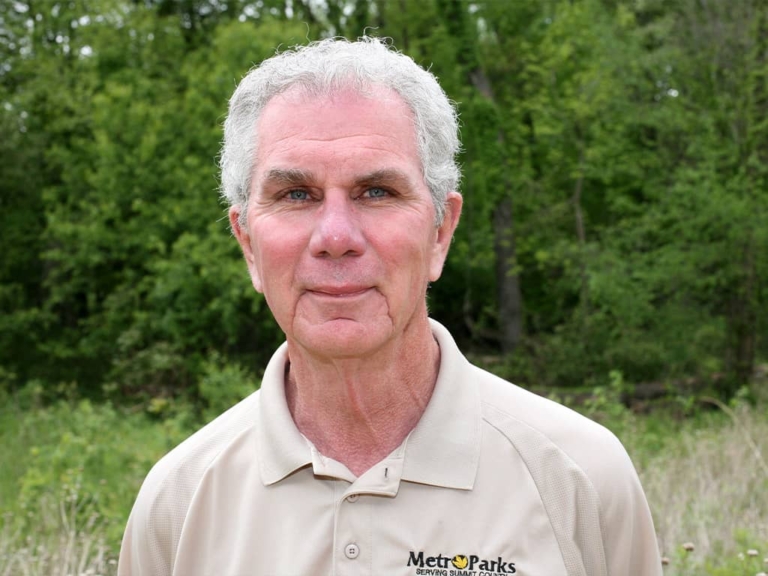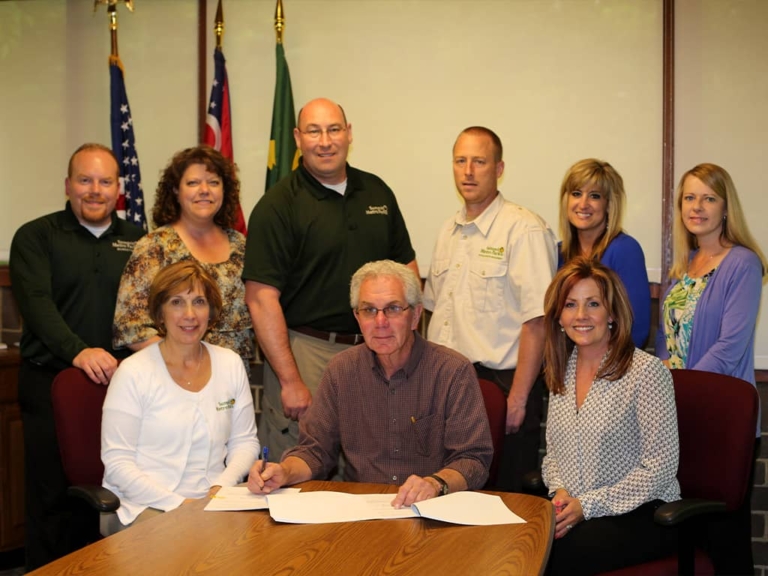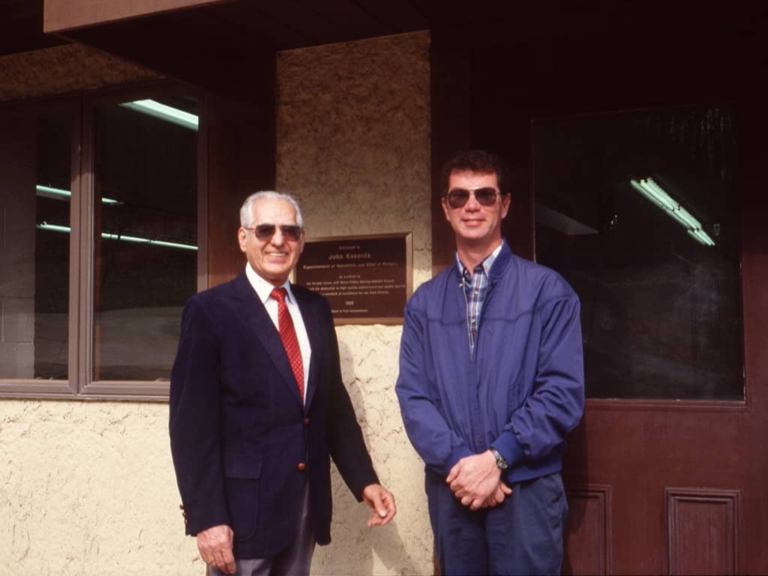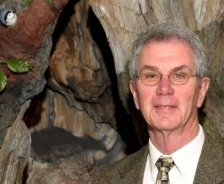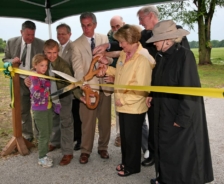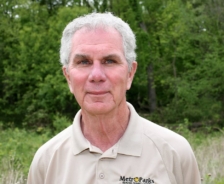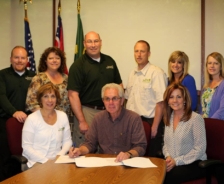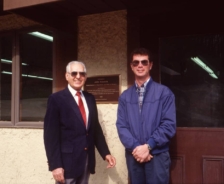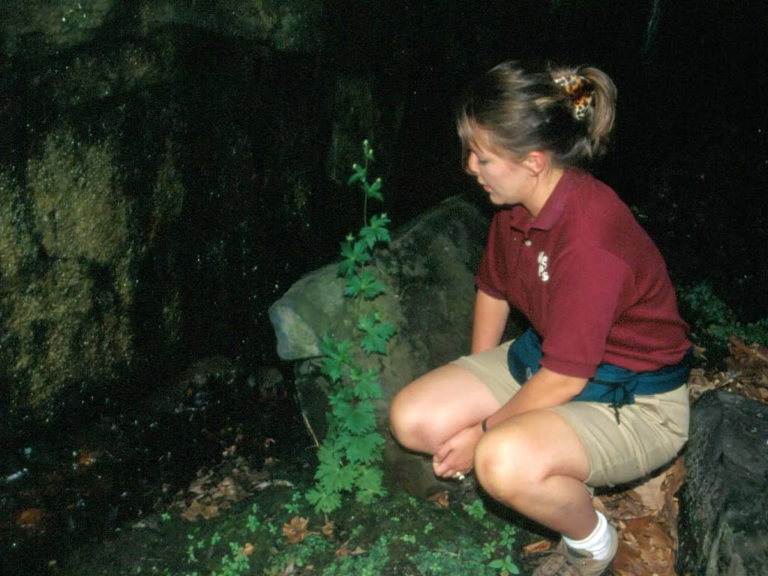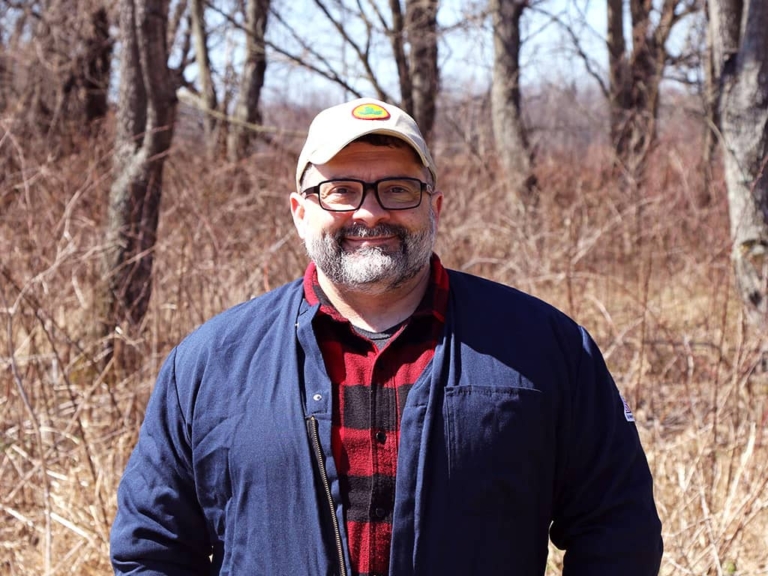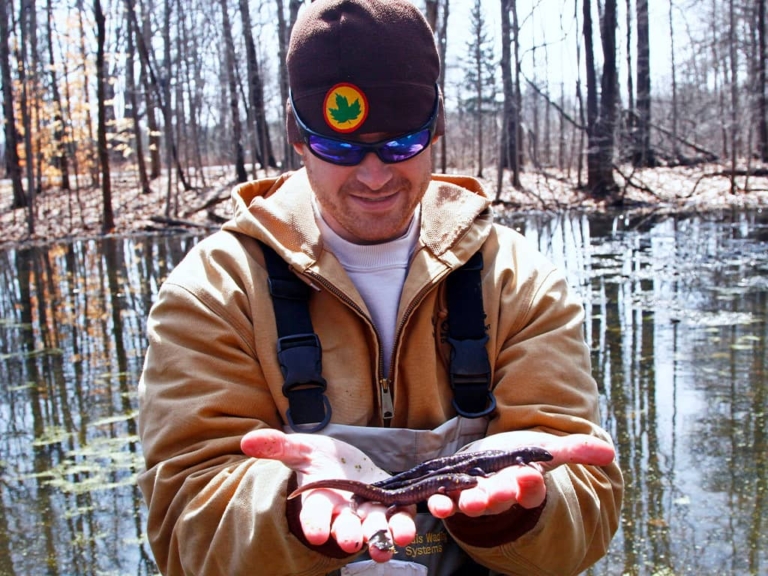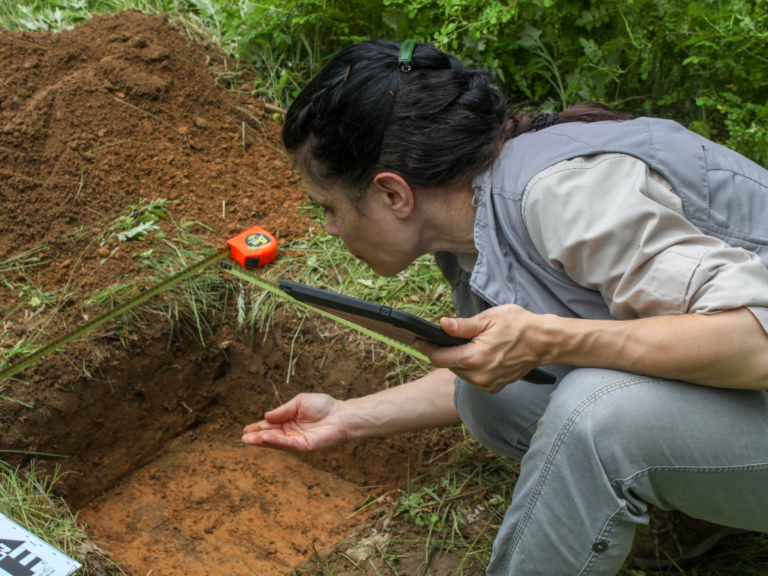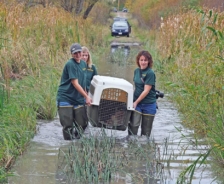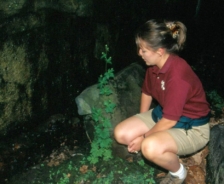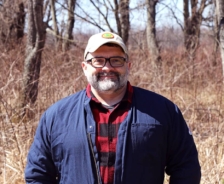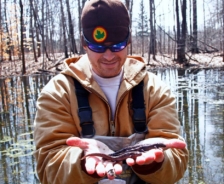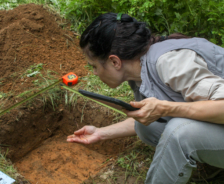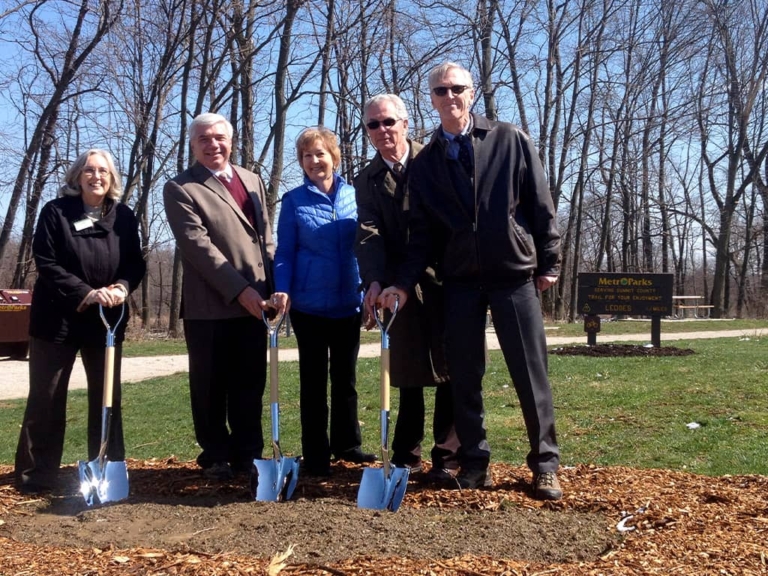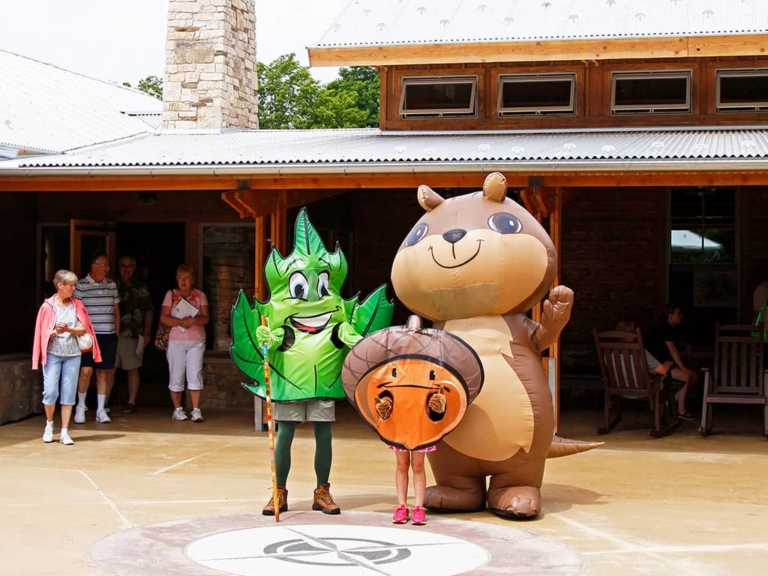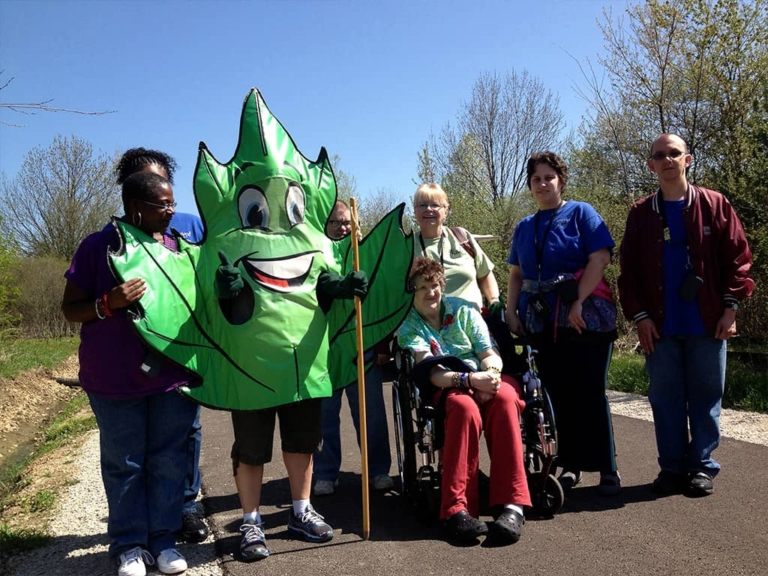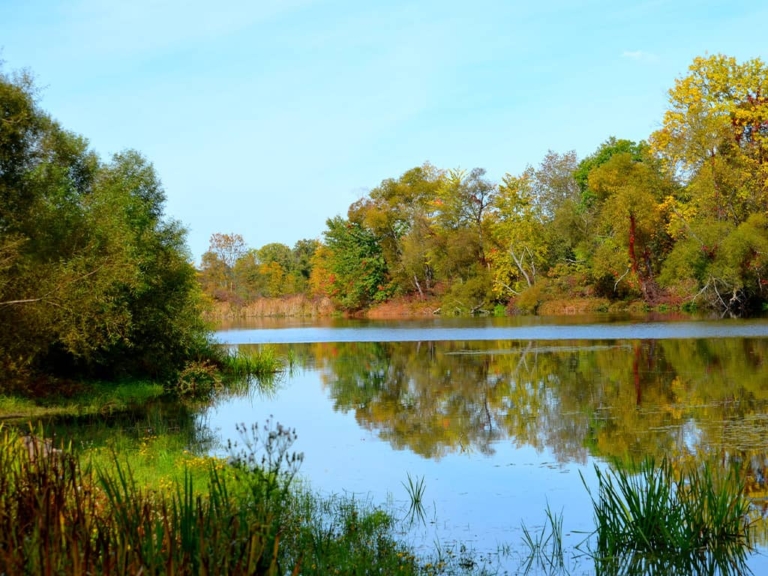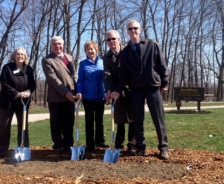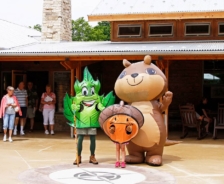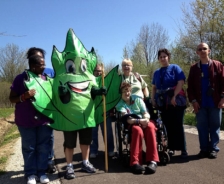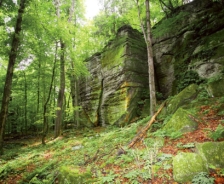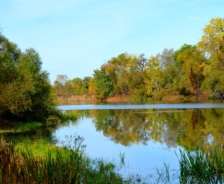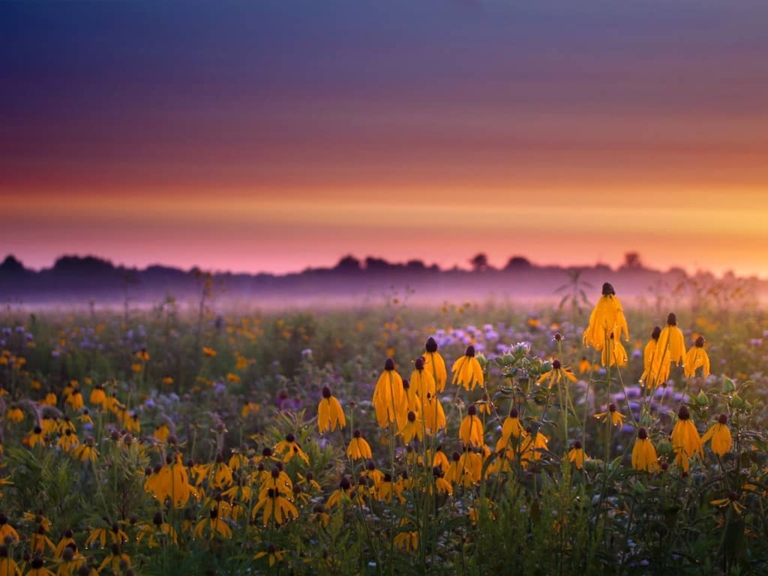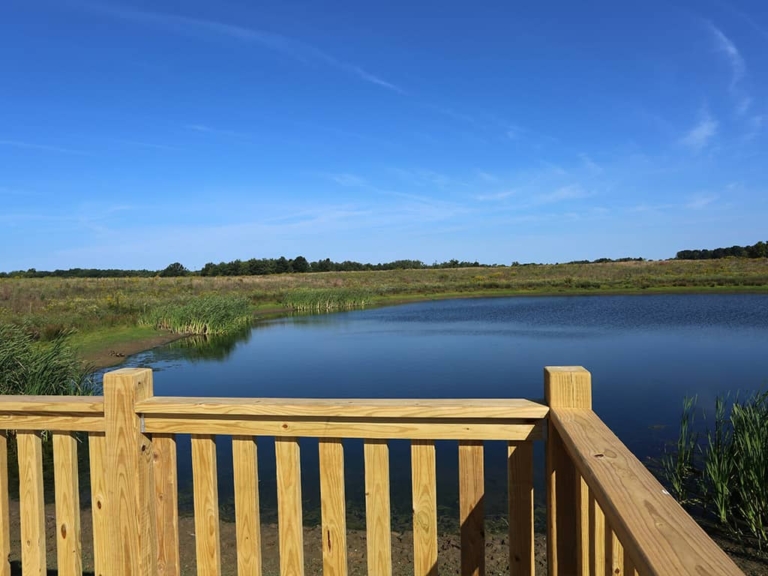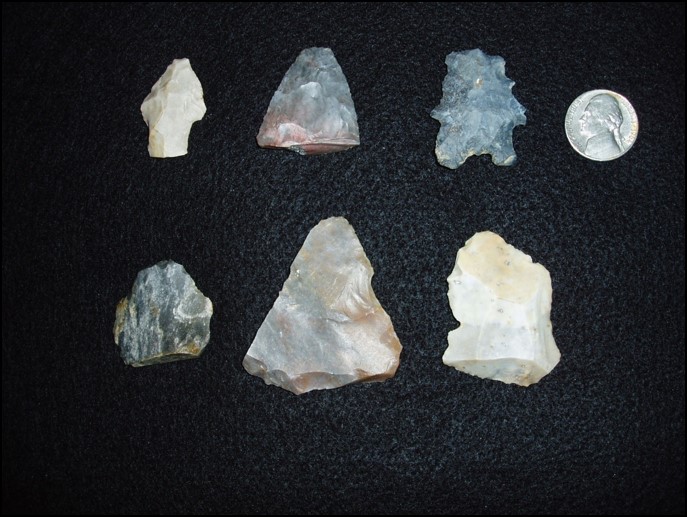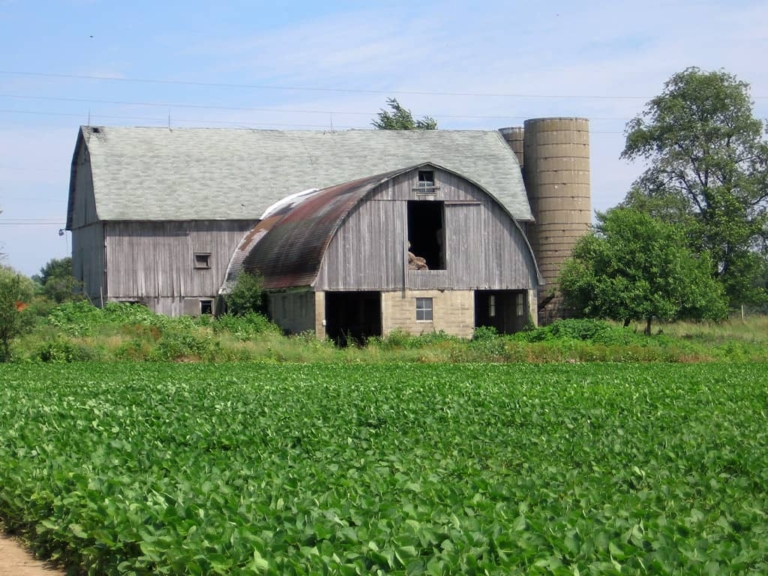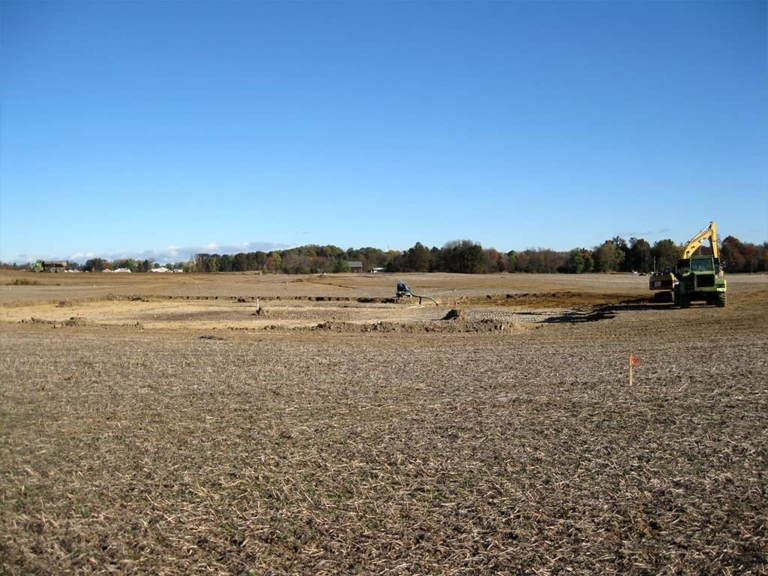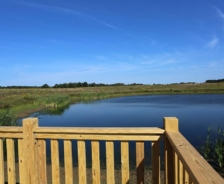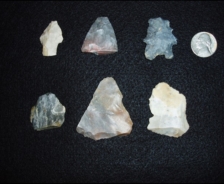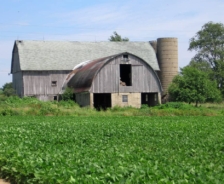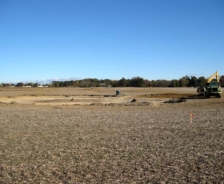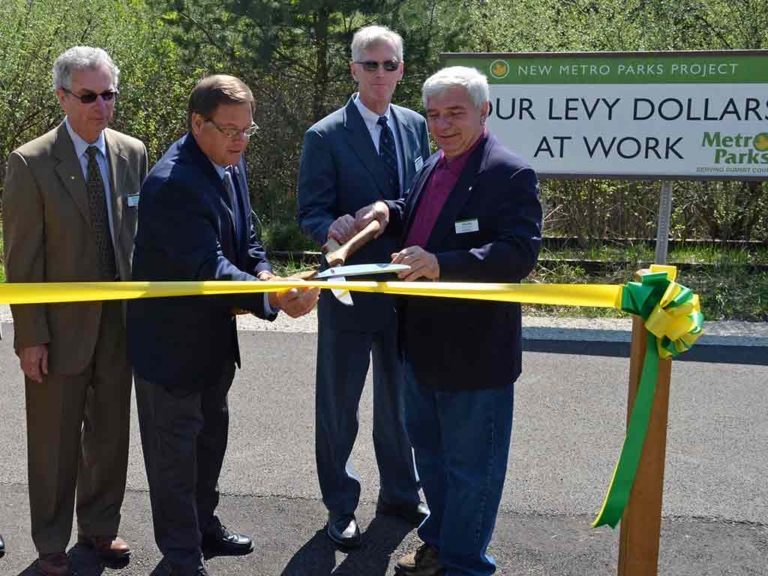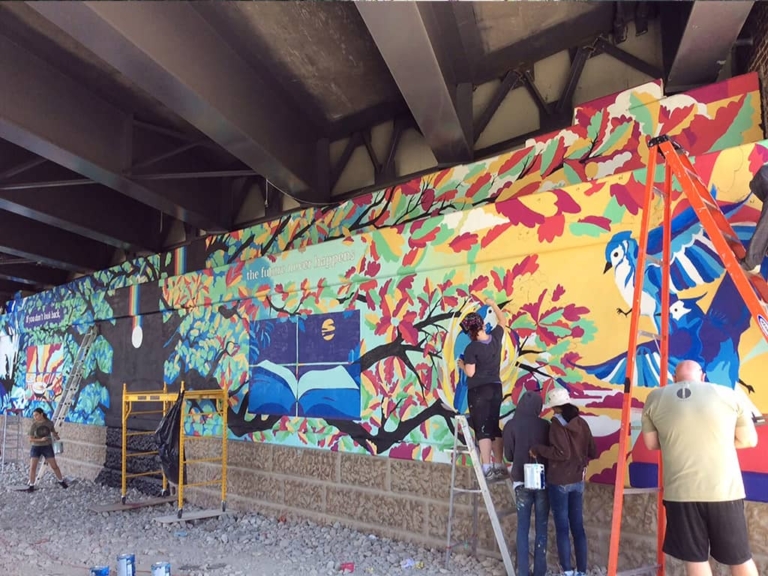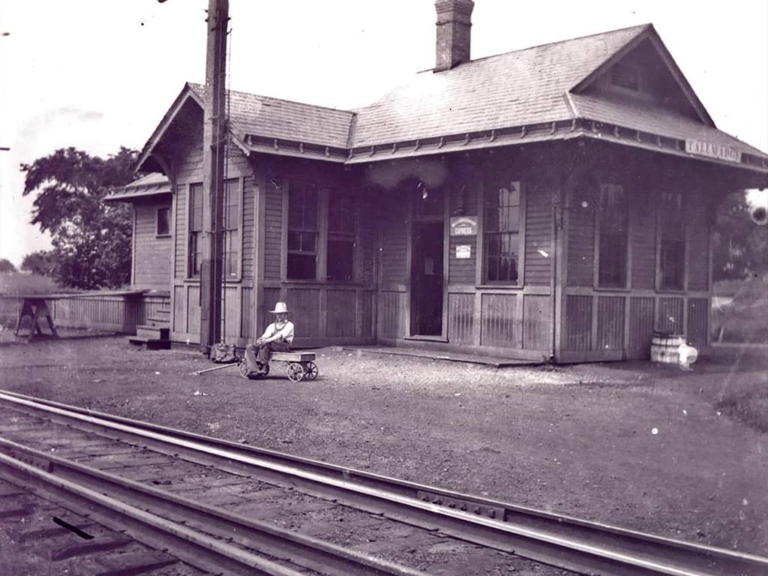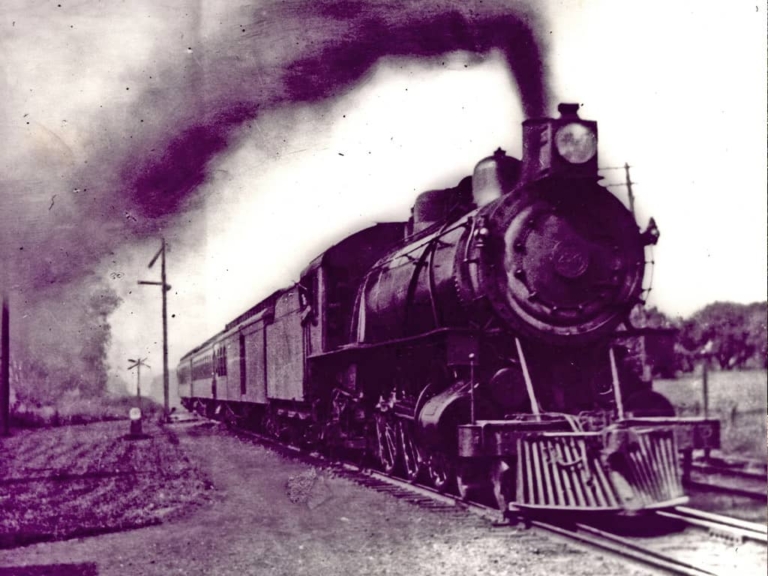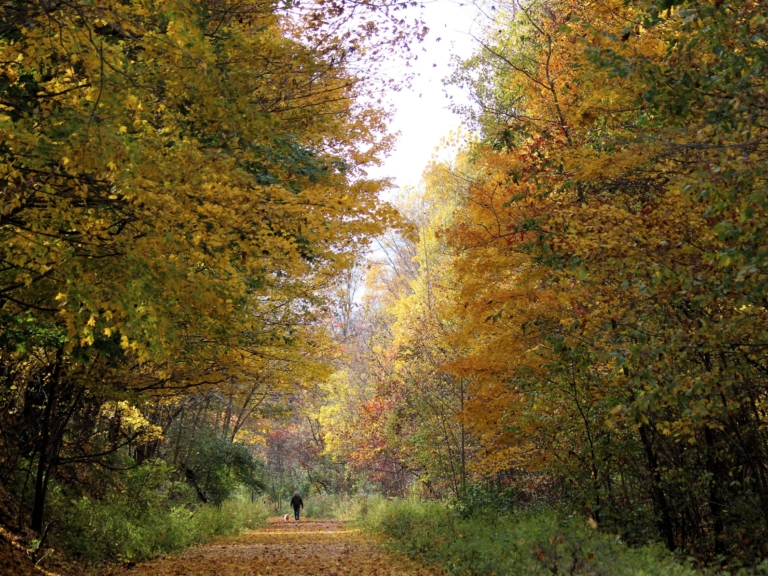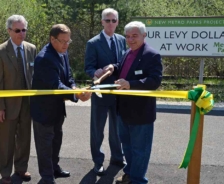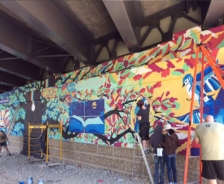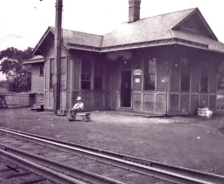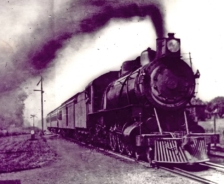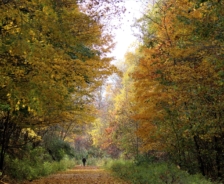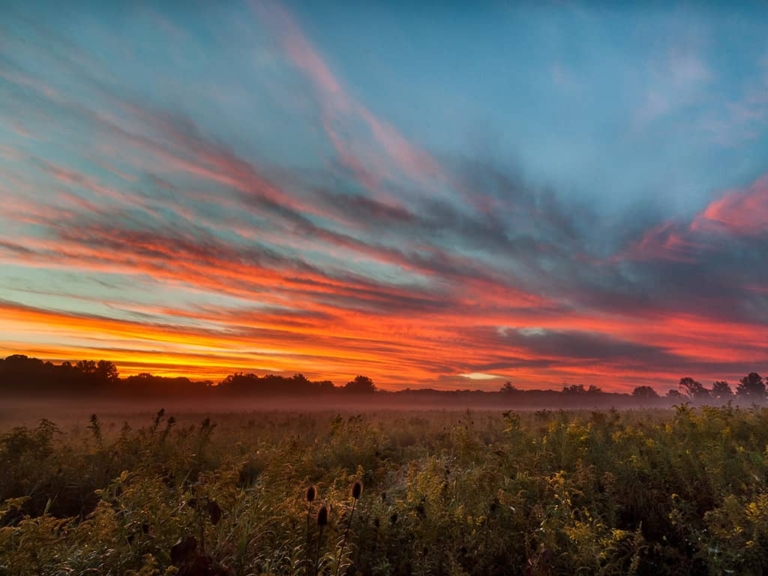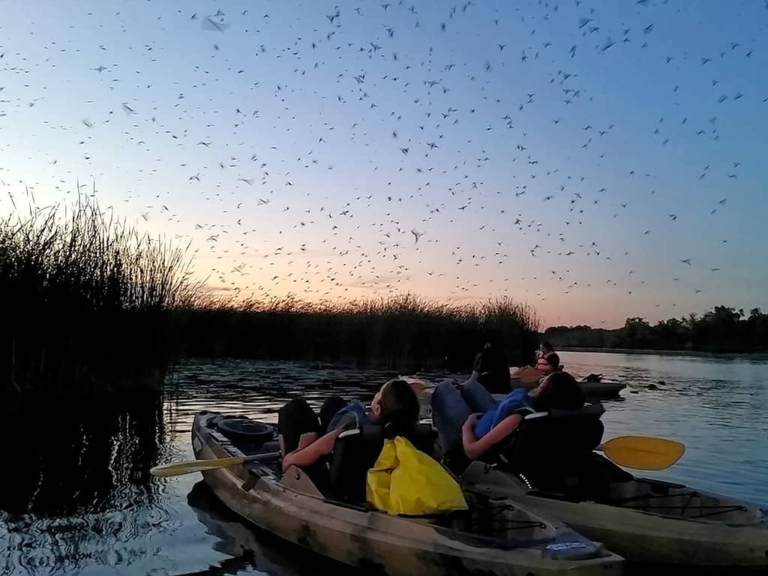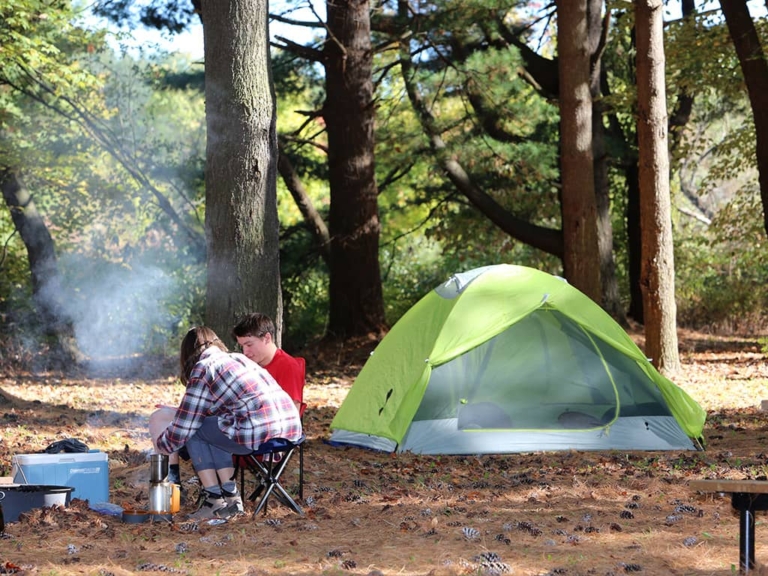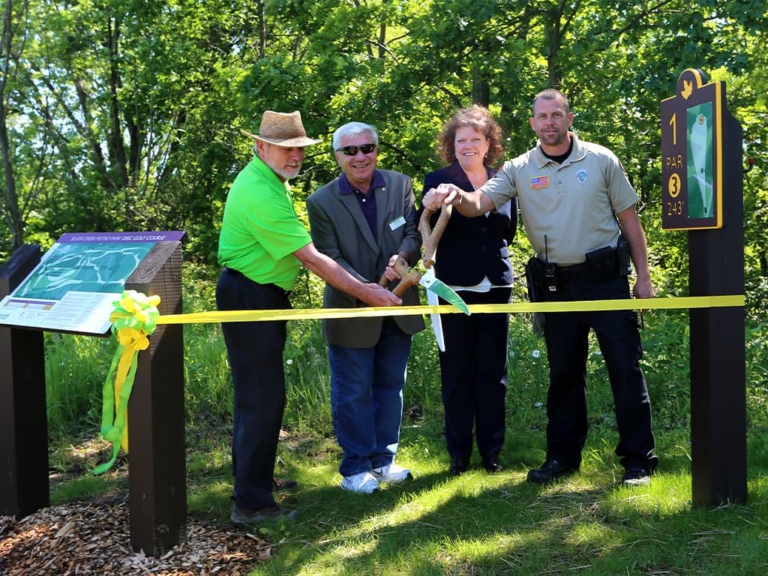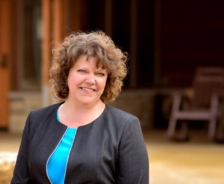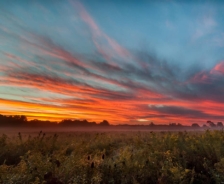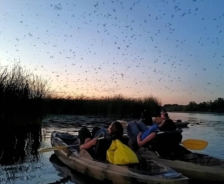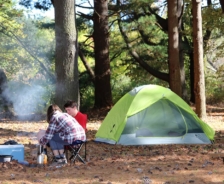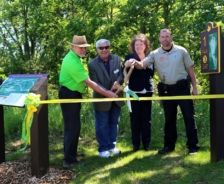A Century
of Memories
Summit Metro Parks Through the Ages
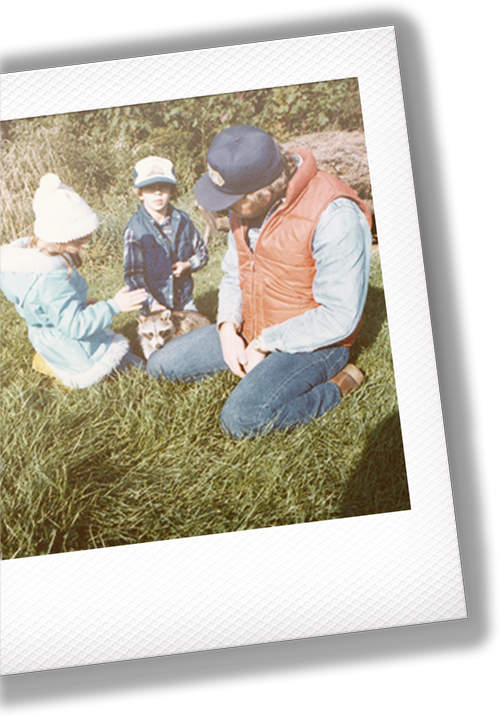
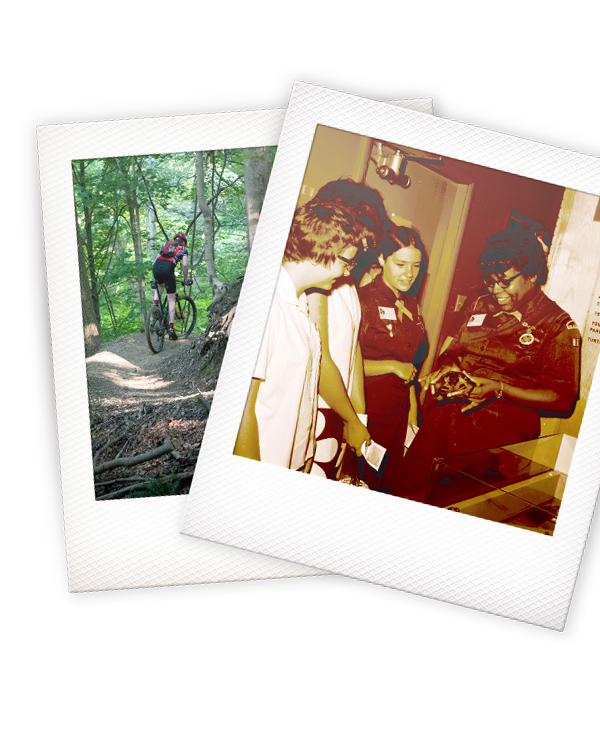

Park District Founded
By the turn of the 20th century, the nation was beginning to realize the importance of saving natural resources. As industrialization shifted people from the countryside and into urban areas, the Ohio General Assembly gave counties the authority to create metropolitan park districts in 1911. Under the leadership of Goodyear Tire & Rubber founder F.A. Seiberling, the Akron Metropolitan Park District (later Summit Metro Parks) was established in 1921. Local farmer Joseph Courtney made the first land donation during Akron’s centennial celebration in 1925, which is marked with a boulder that can still be seen today.
Harold S. Wagner Named Director-Secretary
Originally from Boston, young landscape architect Harold S. Wagner arrived in Akron in 1917 to design the Fairlawn Heights neighborhood. At the conclusion of that project, F.A. Seiberling persuaded Wagner to serve as superintendent of Akron’s city parks, then as the first director-secretary for the newly formed Akron Metropolitan Park District. In that role, Wagner oversaw the park district’s early days and set it on a path to long-term success. Wagner was well-known nationally as a pioneer in park planning and management, serving on the Advisory Board on National Parks, Historic Sites, and Monuments and other national and state organizations.
Sand Run Metro Park Established
F.A. Seiberling made the first large-scale contribution with 500 acres of land stretching from Merriman Road to Ghent Road. Wagner and his colleagues then approached remaining landowners to either donate or sell their rights-of-way along the future Sand Run Parkway. When it opened to the public in 1929, the park was close to 700 acres with a perimeter of 12 miles. Setting this area aside not only protected a magnificent landscape rich in recreational potential, it also preserved a link to the historic Portage Path. Today the park receives about 2 million visits each year.
Furnace Run, Goodyear Heights & Gorge Metro Parks Established
By 1930, the fledgling park district was on a roll, with three new parks added in a single year. Furnace Run Metro Park in Richfield was donated by Dorothy Hamilton Brush in honor of her late husband Charles Brush, Jr. Gorge Metro Park in Cuyahoga Falls preserved the Cuyahoga River gorge that had long been a tourist attraction with spectacular waterfalls, natural caves and even a rollercoaster and dance hall. Goodyear Heights Metro Park in Akron was made possible with a donation from local real estate developer Gilbert Waltz and Goodyear Tire & Rubber Company.
Virginia Kendall Park Established
Now part of Cuyahoga Valley National Park, Virginia Kendall was managed by Summit Metro Parks for nearly 50 years and played an important role in the park district’s early history. Named for the land donor’s mother, Virginia Kendall quickly became a popular destination for winter sports, sometimes drawing up to 12,000 visitors in a single day. Perhaps the most popular winter attraction at the park was the twin toboggan chute that operated from 1935 to 1980. The park was also well-known for its hiking opportunities, with two trails included on the first Fall Hiking Spree in 1964.
Firestone Metro Park Established
By the early 1940s several parks had been established in central and northern Summit County. As population grew south of Akron, park district leaders began looking to add a park in that area. This goal was realized when Firestone Tire & Rubber Company donated a portion of its property, as well as an adjacent farm. With World War II looming, many of the plans for the park ultimately had to be put on hold. The park district had now reached approximately 2,000 acres in size and no new parks were added for another 25 years.
Forrest B. Coup Named Director-Secretary
Following the retirement of Harold Wagner in 1958, Forrest B. Coup became director-secretary. A former director of Civilian Conservation Corps (CCC) crews at Virginia Kendall, Coup had been the park district’s superintendent of maintenance since 1935. Acquisitions during his tenure included the purchase of the old county hospital property for the development of the Treaty Line Area in Sand Run Metro Park and land along the Ohio & Erie Canal that was transferred from the State of Ohio and later became part of Deep Lock Quarry Metro Park.
Green Islands Magazine Debuts
First a newsletter and now a magazine with a circulation of 14,000, Green Islands began as a way to share park district updates and events with Summit County residents. Named for the parks sprinkled like islands throughout the county, the newsletter was originally published in the basement of Goodyear Heights Lodge. The current version is a bi-monthly magazine delivered free of charge to Summit County residents who join the mailing list. Readers enjoy nature articles, park district updates, family-friendly activities, a program and events guide and more.
Arthur T. Wilcox Named Director-Secretary
Although he served the shortest term of any of the park district’s leaders, Arthur T. Wilcox left an incredible legacy. Originally hired as a landscape architect in the late 1930s, World War II quickly led Wilcox to take a job with Goodyear Aircraft designing tools for the Corsair and the B-26. Years later, Forrest B. Coup asked him to return. Wilcox effectively took over leadership of the park district in 1960 before becoming the official director-secretary in 1963. His most lasting and significant contribution was the creation of the Fall Hiking Spree, which got its start in 1964.
Deep Lock Quarry Metro Park Opens & Fall Hiking Spree Begins
Though originally deeded to the park district in 1934, the quarries at Deep Lock Quarry Metro Park continued to operate for many years and the area did not officially open to the public until 1964. By that time, the area’s sandstone had been used to help build much of Akron’s and the park district’s infrastructure. Meanwhile, the Fall Hiking Spree was launched as a way to encourage visitors to explore all that the park district had to offer. Now the longest-running event of its kind in the nation, an average of 12,000 hikers complete the spree each year.
John R. Daily Named Director-Secretary
In 1965, the district hired longtime Director-Secretary John R. Daily, who served until 1995. Under his 30-year tenure, the park system grew to 6,600 acres, including the additions of Silver Creek, O’Neil Woods, Hampton Hills, Munroe Falls and Cascade Valley Metro Parks, along with the Bike & Hike Trail and the Kniss Conservation Area. Daily also helped acquire lands in the Cuyahoga Valley in the 1960s that later become part of Cuyahoga Valley National Park, saving them from development.
F.A. Seiberling Nature Realm, Hampton Hills & Silver Creek Established
In 1966, the park district had another busy year with the addition of three new parks. F.A. Seiberling Nature Realm in Akron soon became home to the park district’s first nature center, with naturalists launching an educational program called “School of the Woods” out of the existing barn and farmhouse before the current building was constructed. The same year, the park district purchased the Harter Dairy Farm, now Silver Creek Metro Park in Norton, and received a donation of the Top O’ the World farm from the Adam family, creating what is now Hampton Hills Metro Park in Akron.
Bike & Hike Trail & O’Neil Woods Metro Park Established
The park district continued to expand with the lease and later donation of O’Neil Woods in 1972. Nestled along the Yellow Creek tributary of the Cuyahoga River and once used as a hobby farm by the family of General Tire founder William O’Neil, the property also was also home to a Boy Scout camp for many years. The O’Neil family’s gothic arch barn still stands on the property today. Simultaneously, the park district was busy creating one of the first “rails-to-trails” bikeways in Ohio with the creation of the Bike & Hike Trail. Now 34 miles long, this trail was built along the former New York Central Railroad and the old Akron, Bedford & Cleveland Railroad.
Munroe Falls Metro Park Established
Before the park district purchased 222 acres from the Renner family in 1978, John Renner and his family owned and operated a swim park in what is now Munroe Falls Metro Park. The park nearly doubled in size in 2007 with the addition of the Tallmadge Meadows Area on land that once housed the Summit County Home. Supporting the park district’s goal to reforest 100 acres in its anniversary year, Tallmadge Meadows is also now home to the first Centennial Grove.
Cascade Valley Metro Park Established
Beginning in the 1970s, a group of citizen activists advocated for the park district to partner with the City of Akron to create Cascade Valley Metro Park. The park is home to several Summit County icons, including the legendary Signal Tree and a scenic overlook high above the Cuyahoga River. In 2016, the acquisition of the Valley View Area linked a 1,700 acre preserve of connected green space stretching from Sand Run Metro Park in Fairlawn to Gorge Metro Park in Cuyahoga Falls – achieving a vision originally proposed in the park district’s 1925 master plan.
Fall Family Outings Begin
Created to celebrate the United Nations’ International Year of the Family, the first free Fall Family Outing was held at Goodyear Heights Metro Park on October 22, 1994 with assistance from Friends of Metro Parks. Approximately 3,000 people attended the first year to enjoy the signature hayrides, bonfires, storytelling, night-time nature walks, crafts, stargazing, movies, a hay bale maze for kids, cartoons and refreshments. The event was moved to Silver Creek in 1997 and beginning in 1998 the annual event was held at both parks on consecutive weekends.
Thomas Shuster Named Director-Secretary
Thomas Shuster served as the director-secretary for the park district during it’s 75th anniversary year. Under his leadership, the park district enjoyed a year of celebration and dedication of several projects including the Schumacher Valley Trail and a 75th anniversary garden at F.A. Seiberling Nature Realm.
Keith D. Shy Named Director-Secretary
Additions to the park district during Keith Shy’s tenure include the Overlook Area at Cascade Valley Metro Park in Akron, Liberty Park in Twinsburg, Springfield Bog Metro Park in Springfield Township, the Tallmadge Meadows Area at Munroe Falls Metro Park, the park district’s first mountain bike trails and the management agreement for Nimisila Reservoir in Green. Shy was also instrumental in the creation of the park district’s conservation department. In 2007, the Portage Trail Group of the Sierra Club presented him with the John Seiberling Environmental Achievement Award.
Conservation Department Established
While conservation of natural resources has been an integral part of the park district’s mission since its inception, it was in 2003 that a separate, dedicated conservation department was established. Its goals were to inventory and map natural resources throughout the parks and to manage park wildlife to create a more balanced ecosystem. The department later expanded to encompass conservation of cultural resources within the park district. Together, conservation staff established Summit Metro Parks as a county and regional leader in conservation through original scientific research, powerful partnerships and initiatives that benefit Northeast Ohio as a whole.
Liberty Park Established, Spree for All Begins
Created in a unique partnership with the City of Twinsburg, Liberty Park is the park district’s largest protected natural area, encompassing nearly 3,000 acres. In 2015, the park district’s second nature center opened at the Liberty Park Ledges Area and in 2020, Summit Metro Parks completed a 15-year project to restore five miles of stream and 100+ acres of wetlands at Pond Brook. Also in 2004, the park district initiated the Spree for All hiking event for people of all abilities.
Springfield Bog Metro Park Established
Springfield Bog Metro Park opened in 2011 following several years of partnership with the Trust for Public Land to acquire the former farm and pristine kettle bogs in this area. The bog remnants were named for the Young family that settled here in 1877. The Continental Divide, which runs through part of the park, separates water that flows north towards Lake Erie and water that flows south to the Ohio River. An extensive restoration process established a thriving prairie ecosystem, and the park is also home to a prehistoric archaeological site dated to between 7000 and 500 B.C.
Freedom Trail Established
Running from the Kent-Tallmadge border at Middlebury Road to the current terminus in East Akron, Freedom Trail is named for the Freedom Secondary Rail line of the Erie-Lackawanna Railroad that originated at Freedom Township. The trail is an example of the power of community partnerships, including the park district’s strong working relationship with METRO RTA. It bridges the east-west gap leading from Kent and Portage County, through Summit County to downtown Akron. Eventually, it will provide a connection to the north-south Ohio & Erie Canal Towpath Trail in downtown Akron.
Lisa M. King Named Executive Director, Wood Hollow & Nimisila Reservoir Metro Parks Established
Lisa M. King is the seventh director of Summit Metro Parks and the first woman to hold the position. King continues to champion a mission-driven focus that has been an SMP trademark for nearly 100 years and in her position as director, she especially enjoys hearing stories from visitors about the role parks play in their daily lives. Also in 2015, the park district received an anonymous donation that led to the creation of Wood Hollow Metro Park in Hudson and assumed management of Nimisila Reservoir Metro Park in Green.
Park District Passes Levy
Summit Metro Parks is grateful for the longstanding support of Summit County residents and the recent approval of a levy that provides more than 90 percent of the park district’s funding. In 2020, the park district saw six million visits, more than one million more than in a typical year. We are honored to support the physical and mental well-being of our community at all times, and especially during the COVID-19 public health emergency.

Centennial Anniversary of the Park District
Since the park district’s inception 100 years ago, the people of Summit County have been instrumental to its success in providing clean and safe parks, protecting natural resources and connecting people to nature. As Summit Metro Parks embarks on its centennial year, we are most excited about celebrating this achievement with you — the residents, visitors and partners who help make the park district what it is today.
